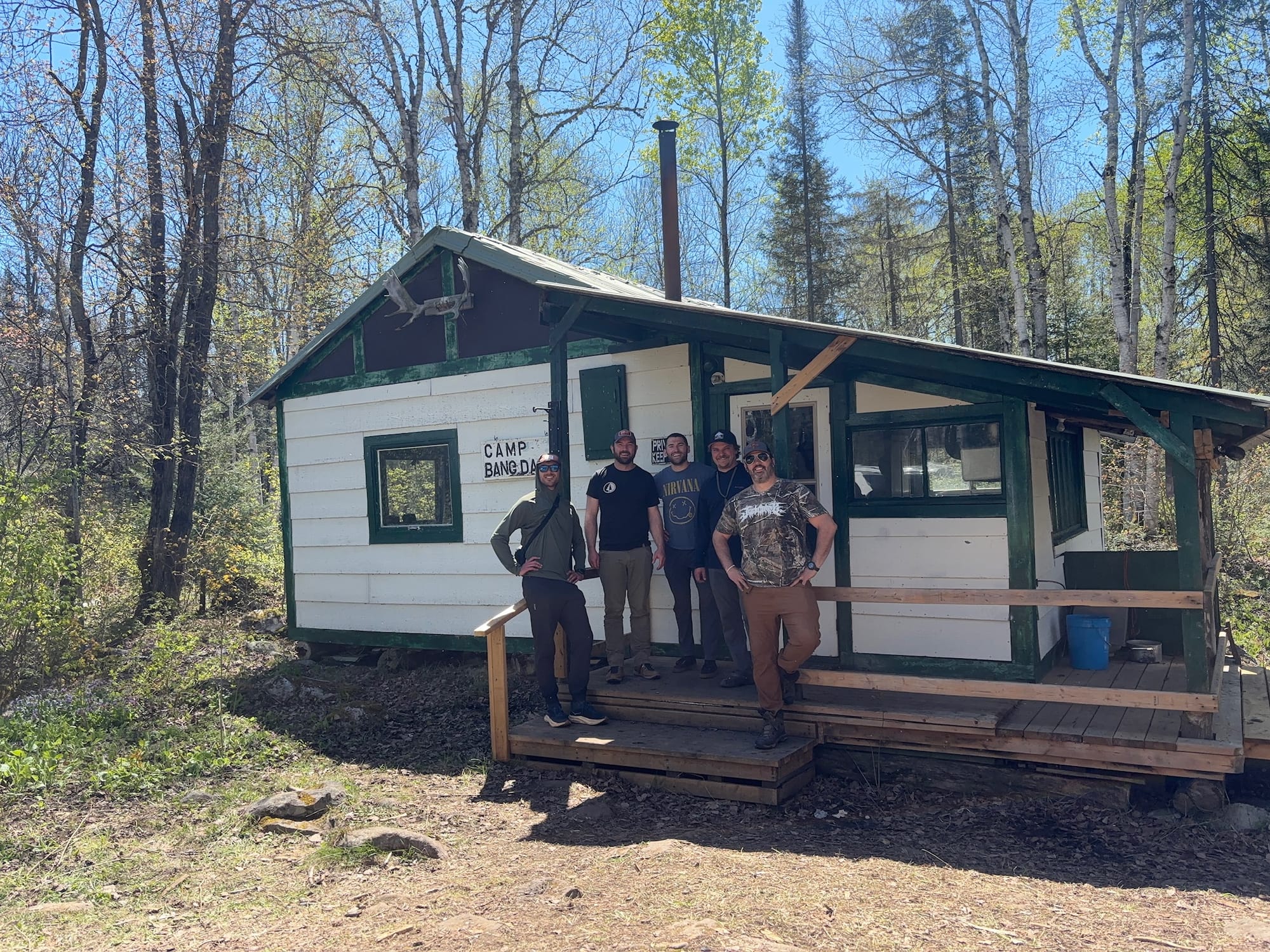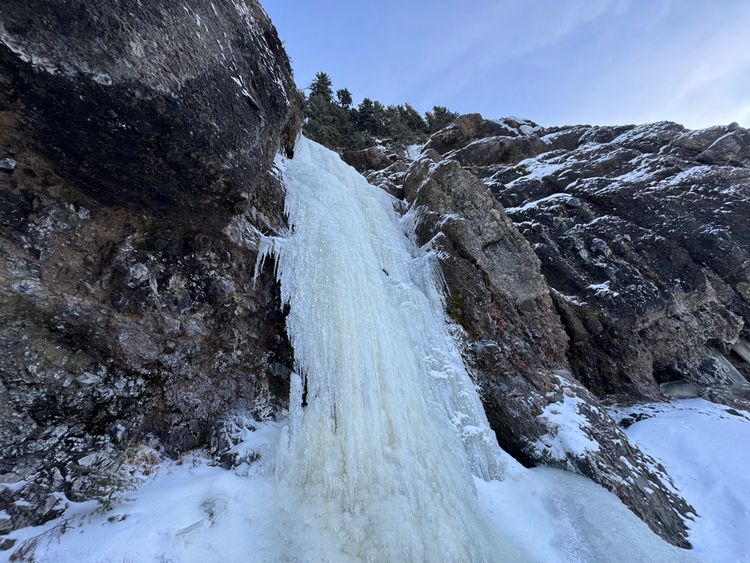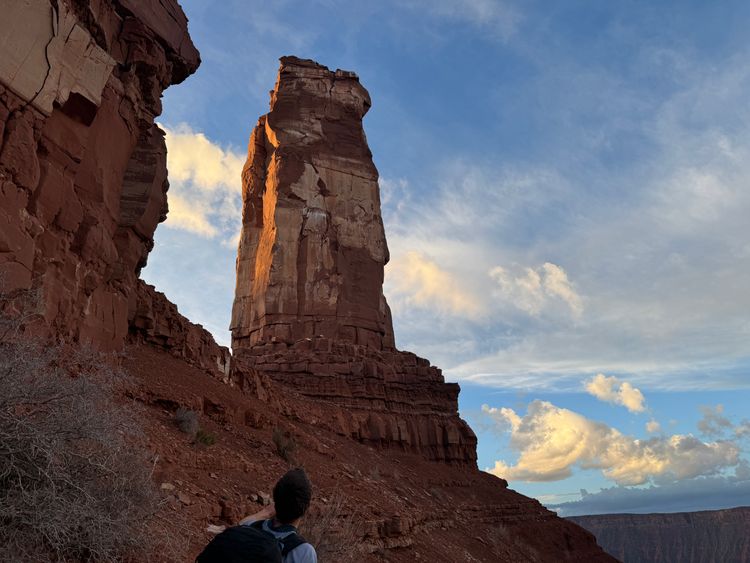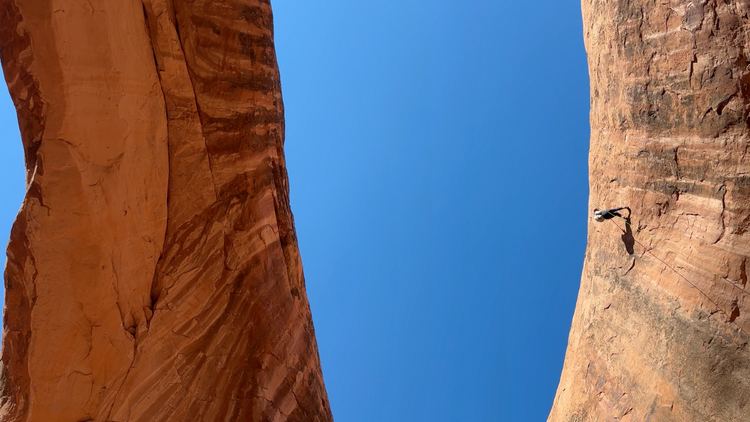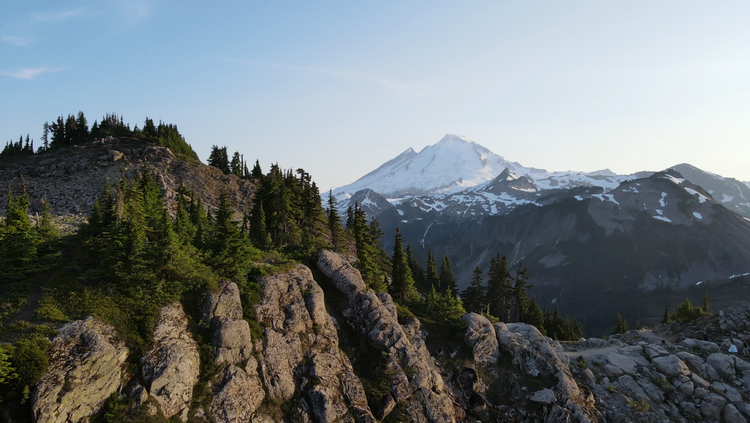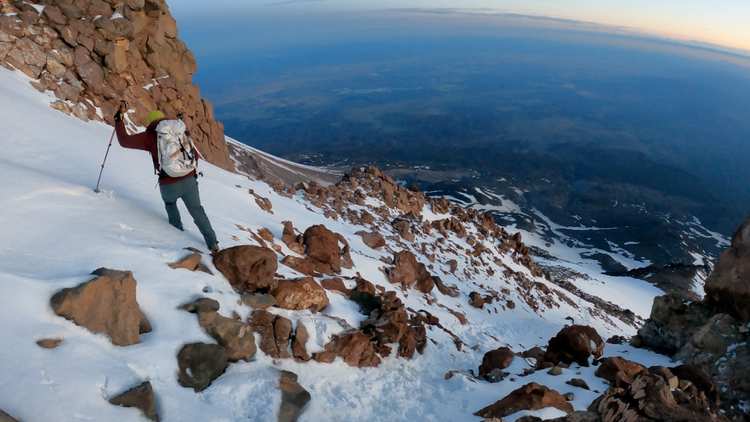In the pines
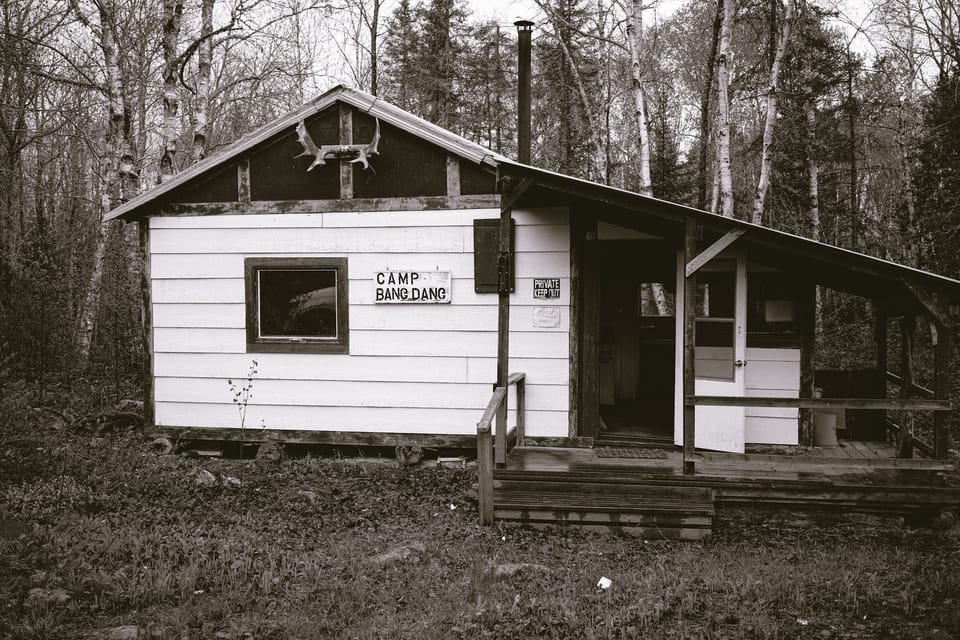
This place began with the power line cut. My friend Sam's great-grandfather, Joseph Avit Despres, inspected the miles of cable strung through these woods. He was part of an enormous operation to bring electricity to the province's remote parts north of Toronto in the mid-1950s. Something about the living here, hewn out of the forests near Temagami, appealed to his Ontarian soul. It may have been the fishy lakes and streams, or the thickets of vegetation stalked by moose and lynx, or the camaraderie of being bunked up in temporary and ramshackle cabins with other working men.
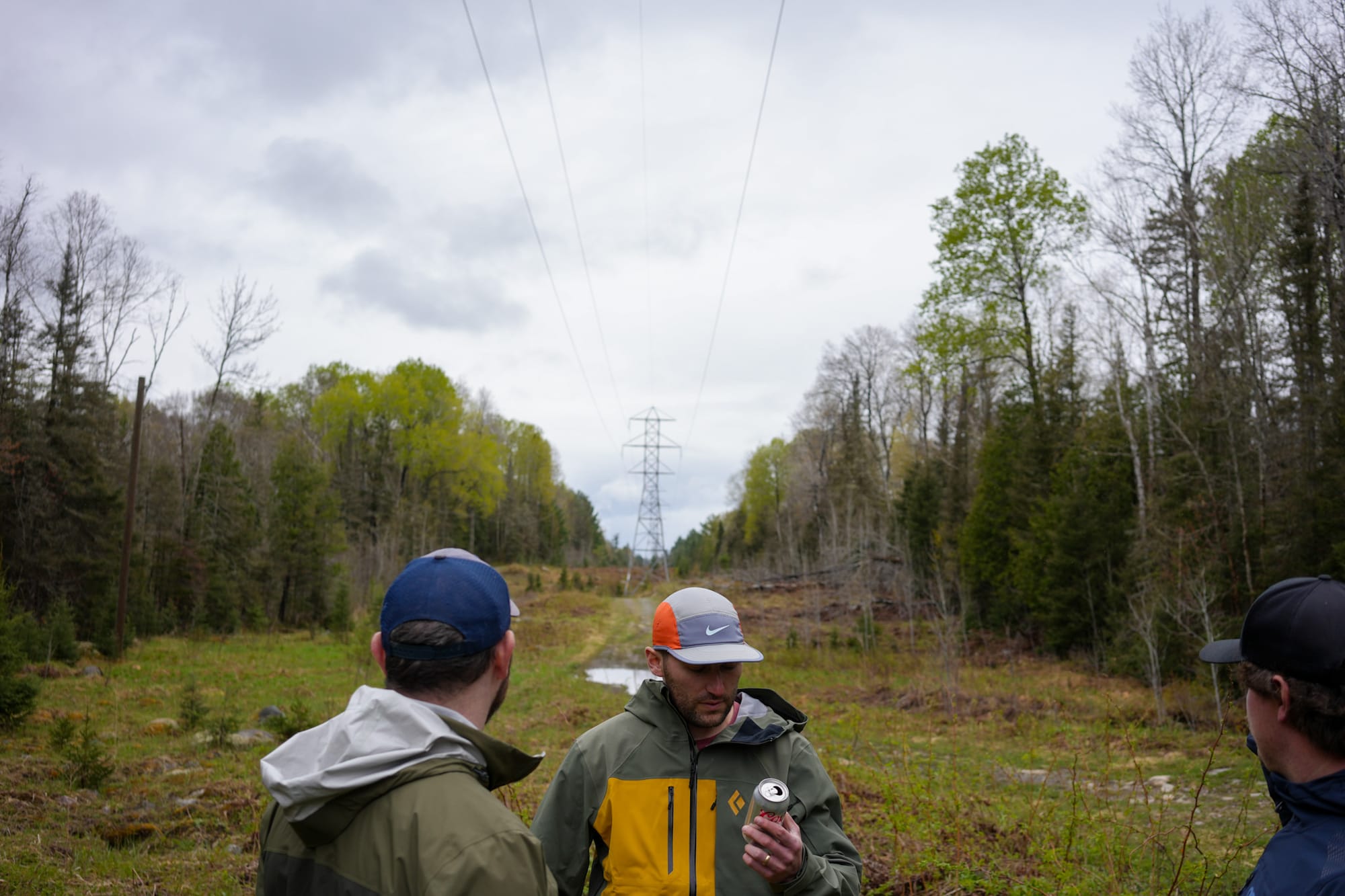
Whatever it was, Joseph secured a lease on some nearby Crown land (equivalent to the Bureau of Land Management property in the US) and rolled one of these cabins to its current location on cedar logs around 1965.
You can feel tradition radiate from the walls of the structure. Covering almost every square inch of available space are pictures from heroic hunts and fishing trips of the past. Five generations of the Despres extended family, along with their friends, have made the pilgrimage here at least once or twice a year since its founding. This is hallowed ground.
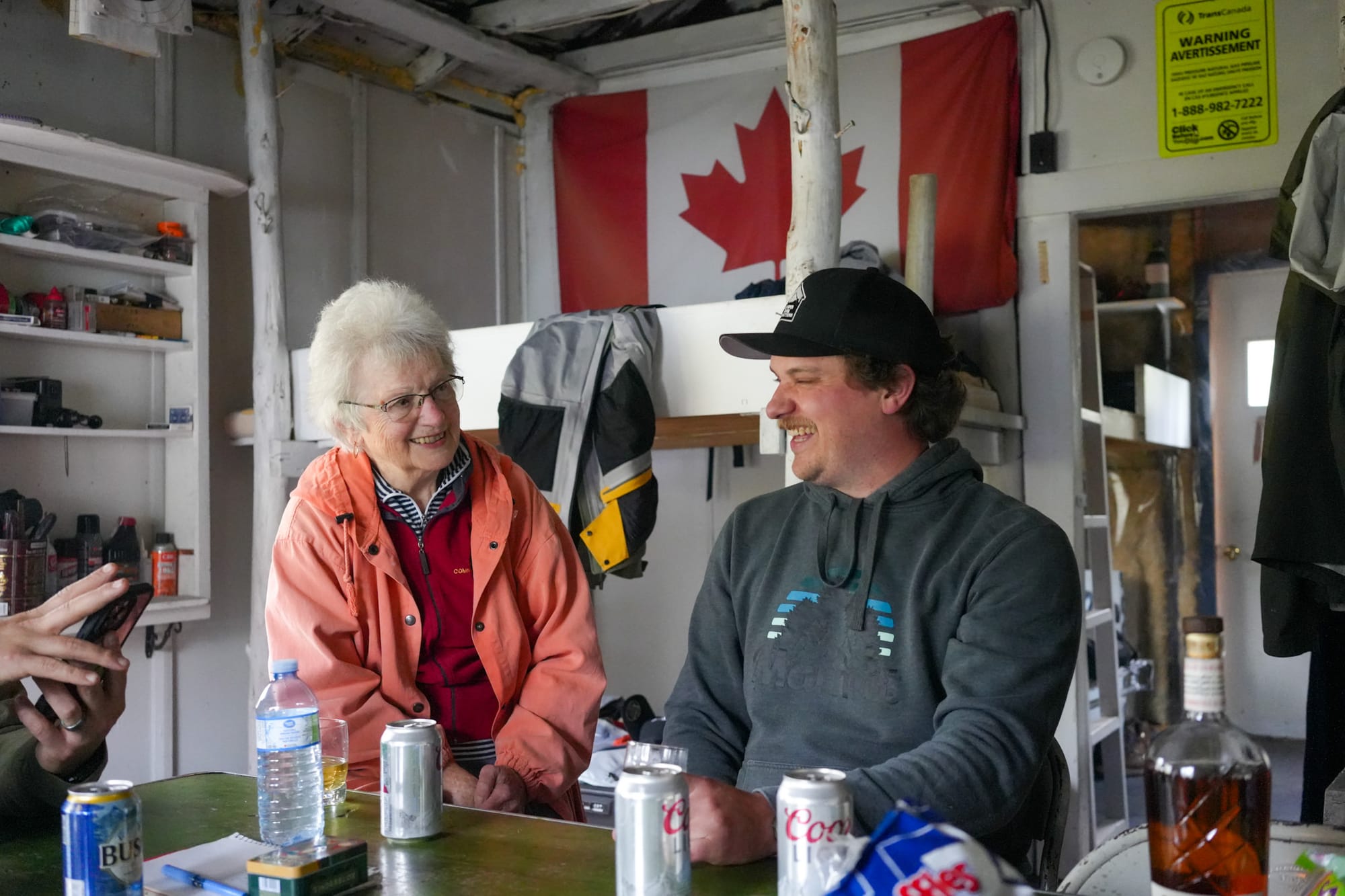
In late May, our group of friends flew from Salt Lake City to Toronto, which was socked in by a thick layer of clouds. We ambled north in a rented Suburban, collecting booze, cigarettes, and supplies, until we hit Temagami. Here, we cut off down a logging road and bumped our way to Camp Bang Dang.
We observed how quickly nature would take back the road once unattended. It looked as if someone had recently come by with a gigantic buzz saw to beat back the creeping birch and undergrowth. Big cuts were rent three yards back into the woods on either side.
We discovered to our delight when we were here fourteen years earlier that the final leg of the trail to camp was almost exactly one "Free Bird" song long. Once again, we air-guitared to Skynyrd as we covered the distance.
When we arrived, we all reverently took in the sight of the old camp, which was smaller than I remembered. Rugged and charming. There's the main cabin, the woodshed, and the outhouse. That's it. The minimal and rustic vibe reminded me a lot of Nagley's in Talkeetna, Alaska, where I'd purchased booze to have at the Kahiltna basecamp on the return trip from Denali.
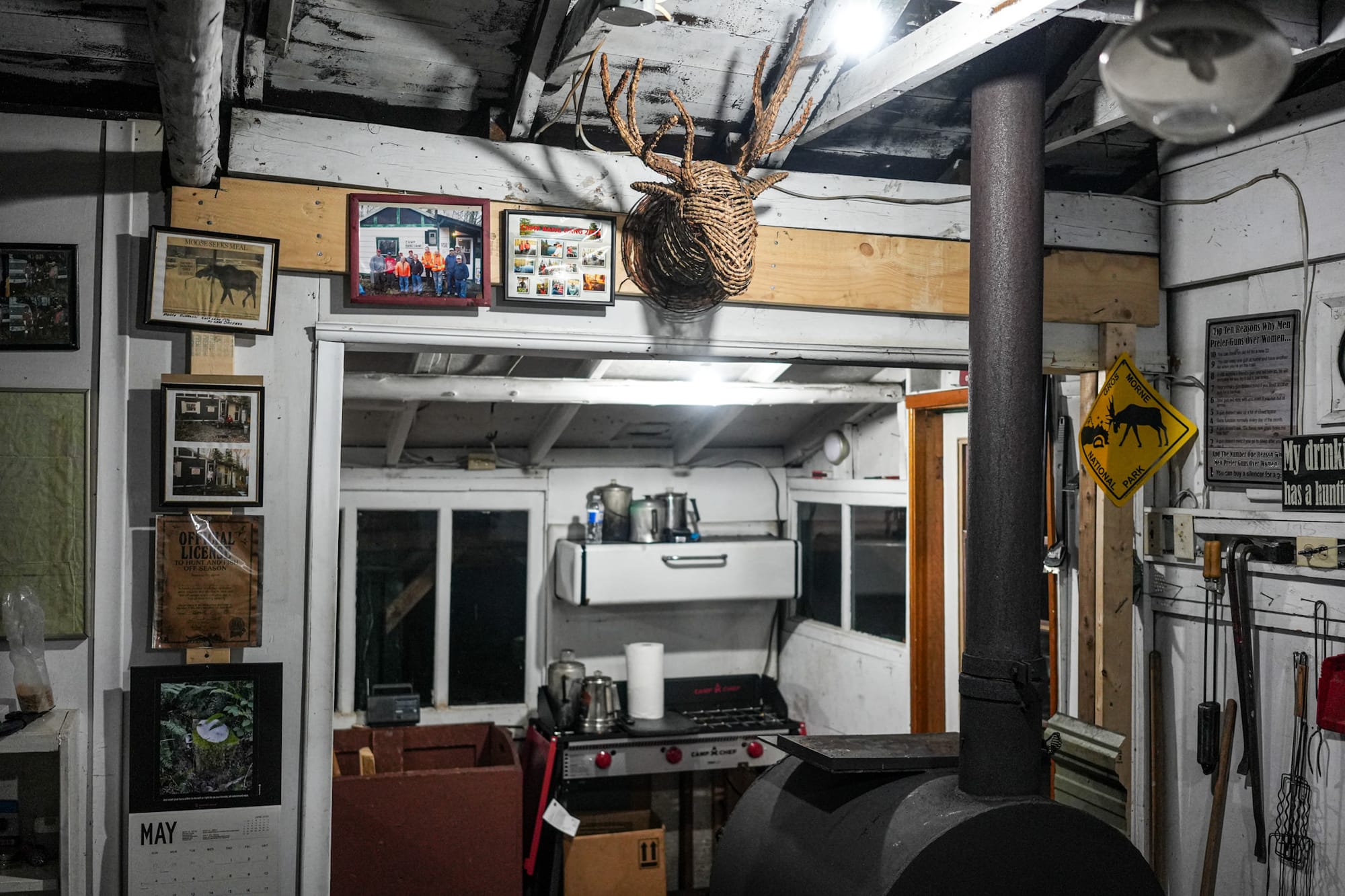
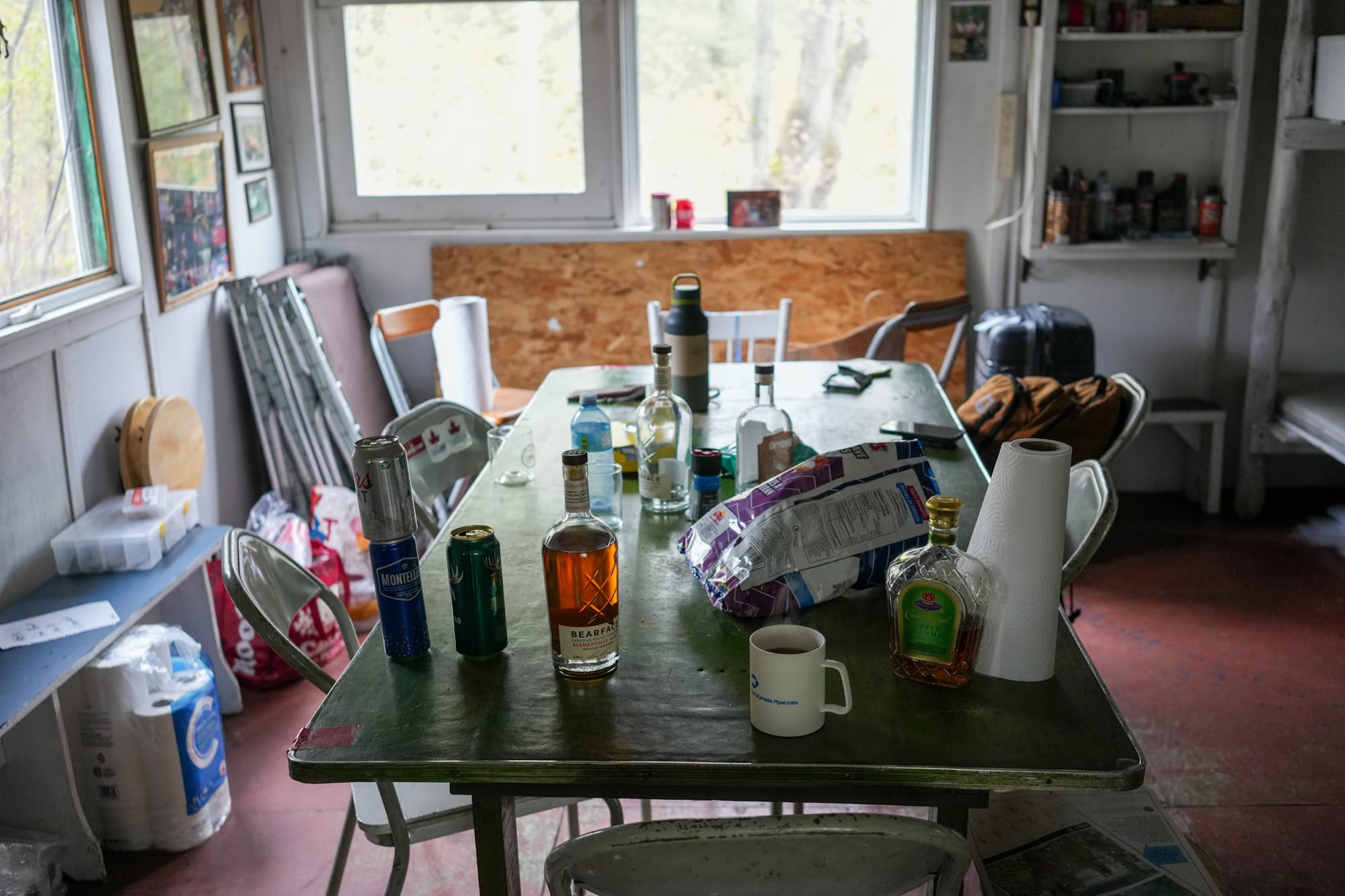
To accommodate the growing numbers in each hunting party, the family had added a bunk room extension to the back. Those wiser among us snagged beds back there. After clearing off the mouse turds, I threw my stuff on a mattress in the main room with the stove, which would later make the room sweltering hot in the night.
The stove is a section of steel natural gas pipeline that one of Sam's crafty relatives had welded caps onto, as well as a stovepipe jutting straight into the ceiling. A few logs get it ripping. Our friend Tanner learned this later, melting his polyester socks on the metal in an attempt to dry them out. That plasticky smell lingered in the air for hours afterward.
The fishing commenced almost immediately. We strode down to the lake through the wet trees to the launch, which is hemmed in by thick brush. The mushy ground here is untrustworthy unless you're fine soaking your feet.
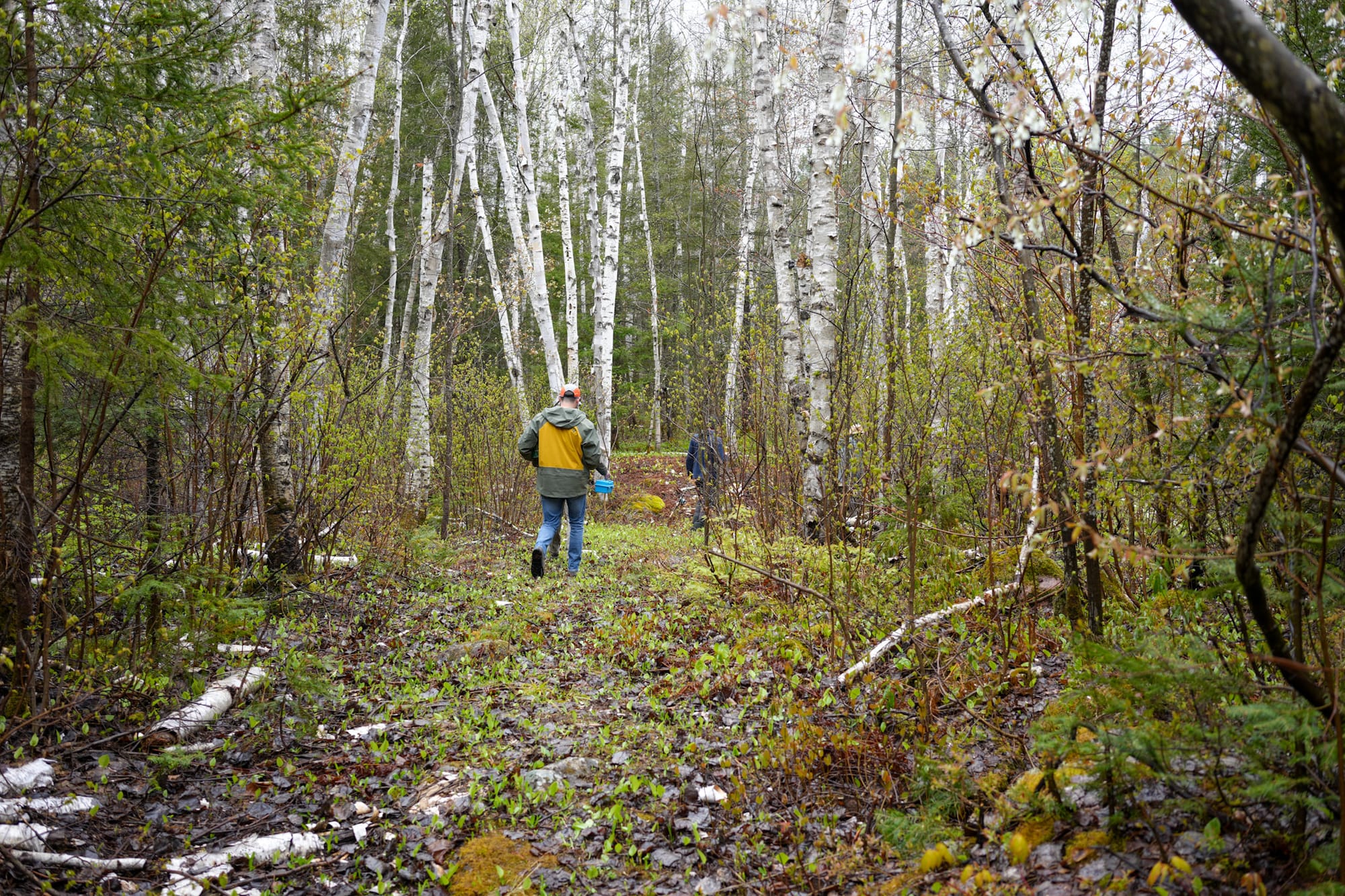
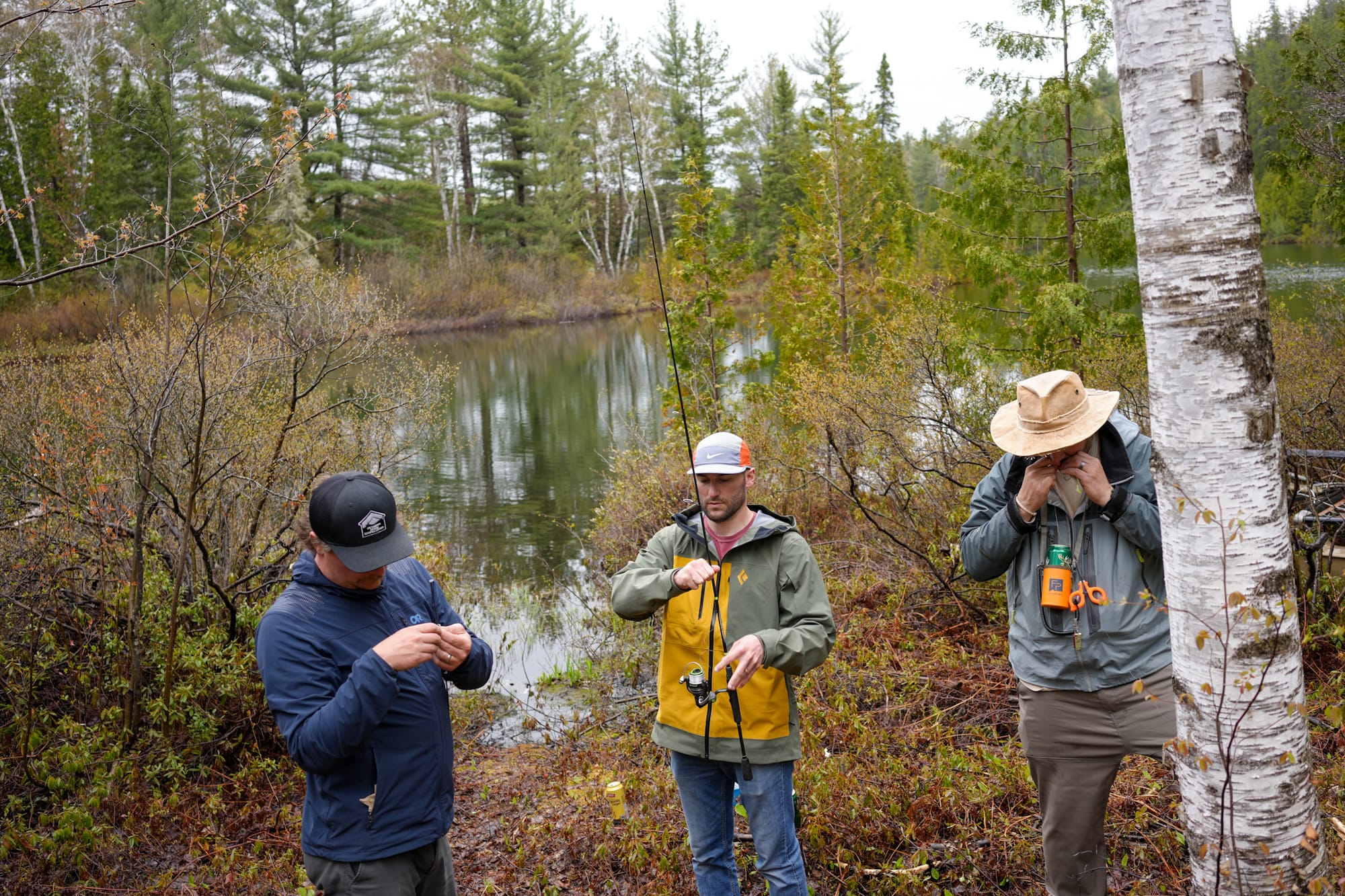
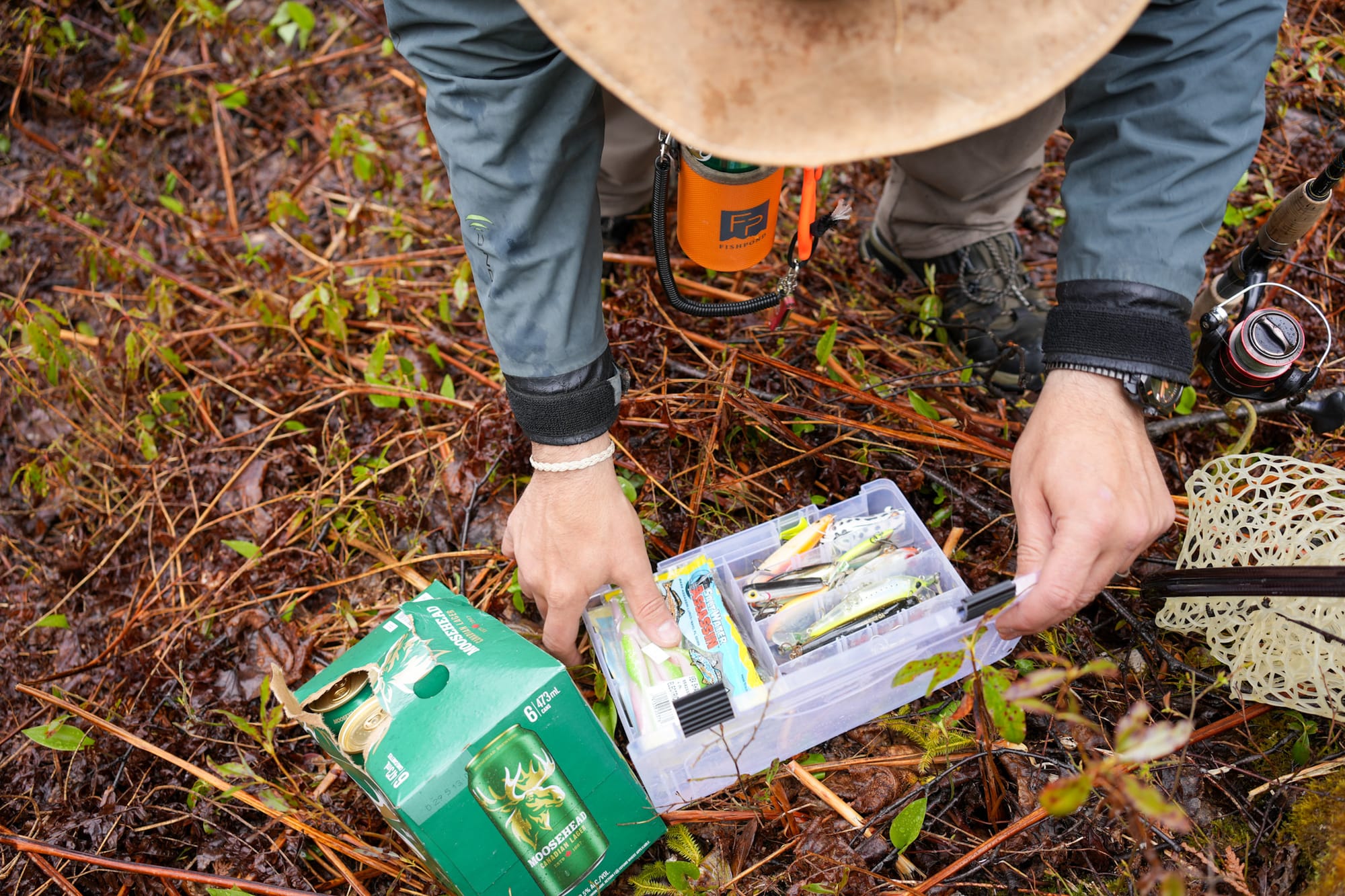
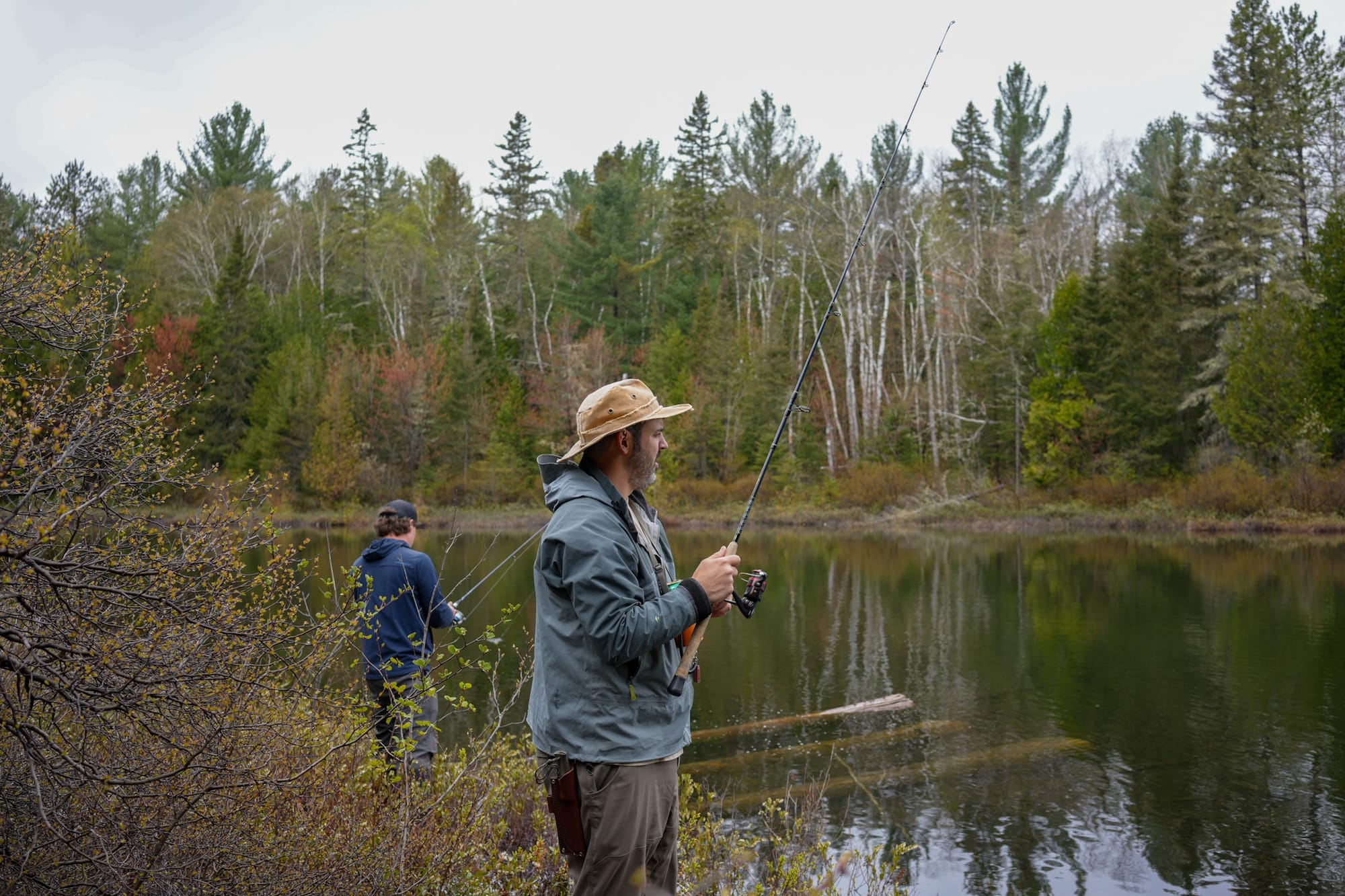
To our left at the launch was an old green canoe. After a moment, I recognized it as the one we'd used on our last trip here in 2011 to paddle out to a spit on the lake to fish off the shore (where we caught nothing except a beer buzz). A tree had fallen on the gunwale and caved it in somewhere in the intervening years.
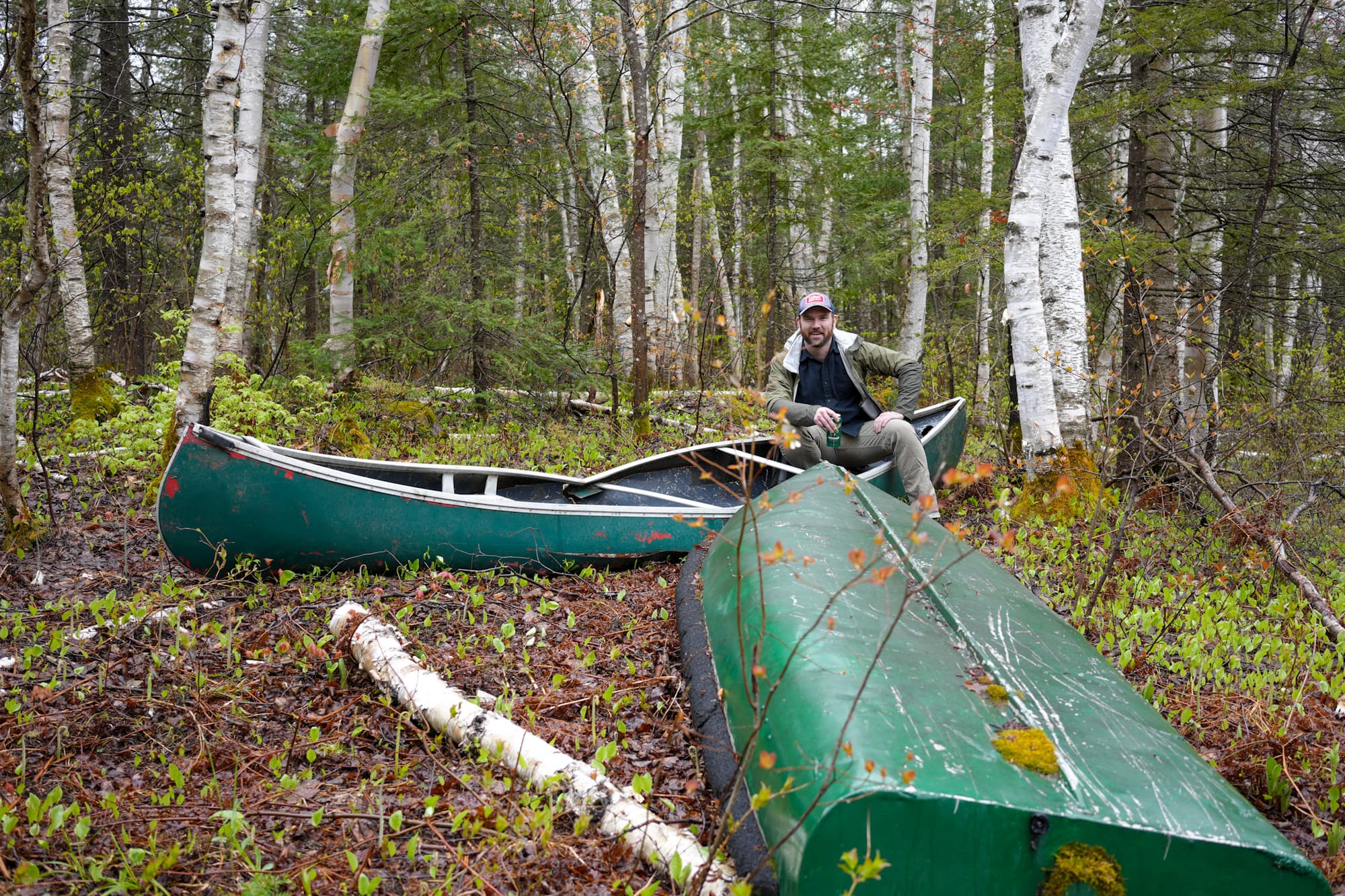
After some fruitless casts, we walked down the snowmobile trail running by Bang Dang to check out the creek. It felt good to stretch our legs after hours in the car and to get a better lay of the land around the camp. My brain floated on several beers at this point and we dragged on cigarettes, the aroma of tobacco mixing with the wet earth.
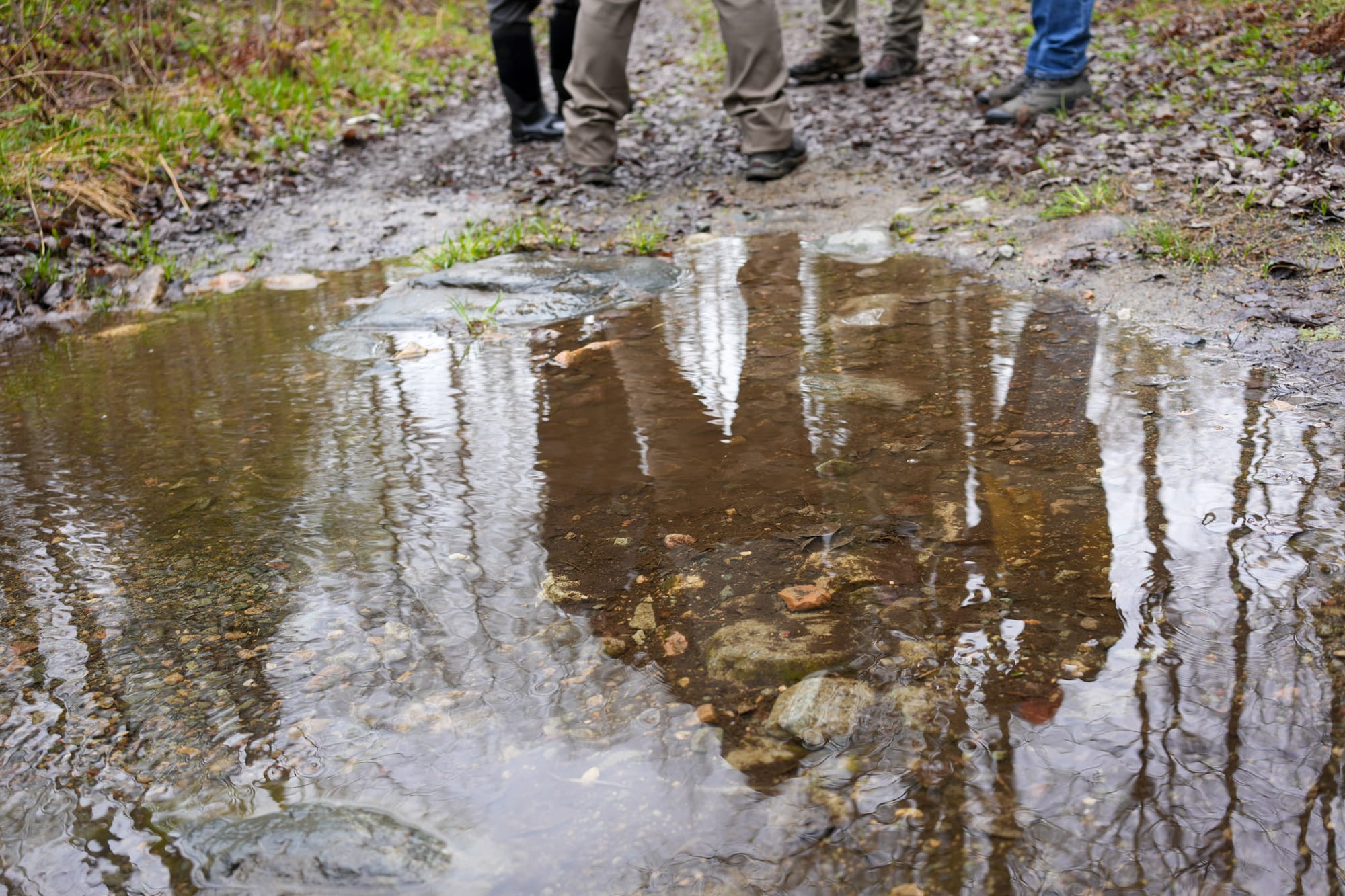
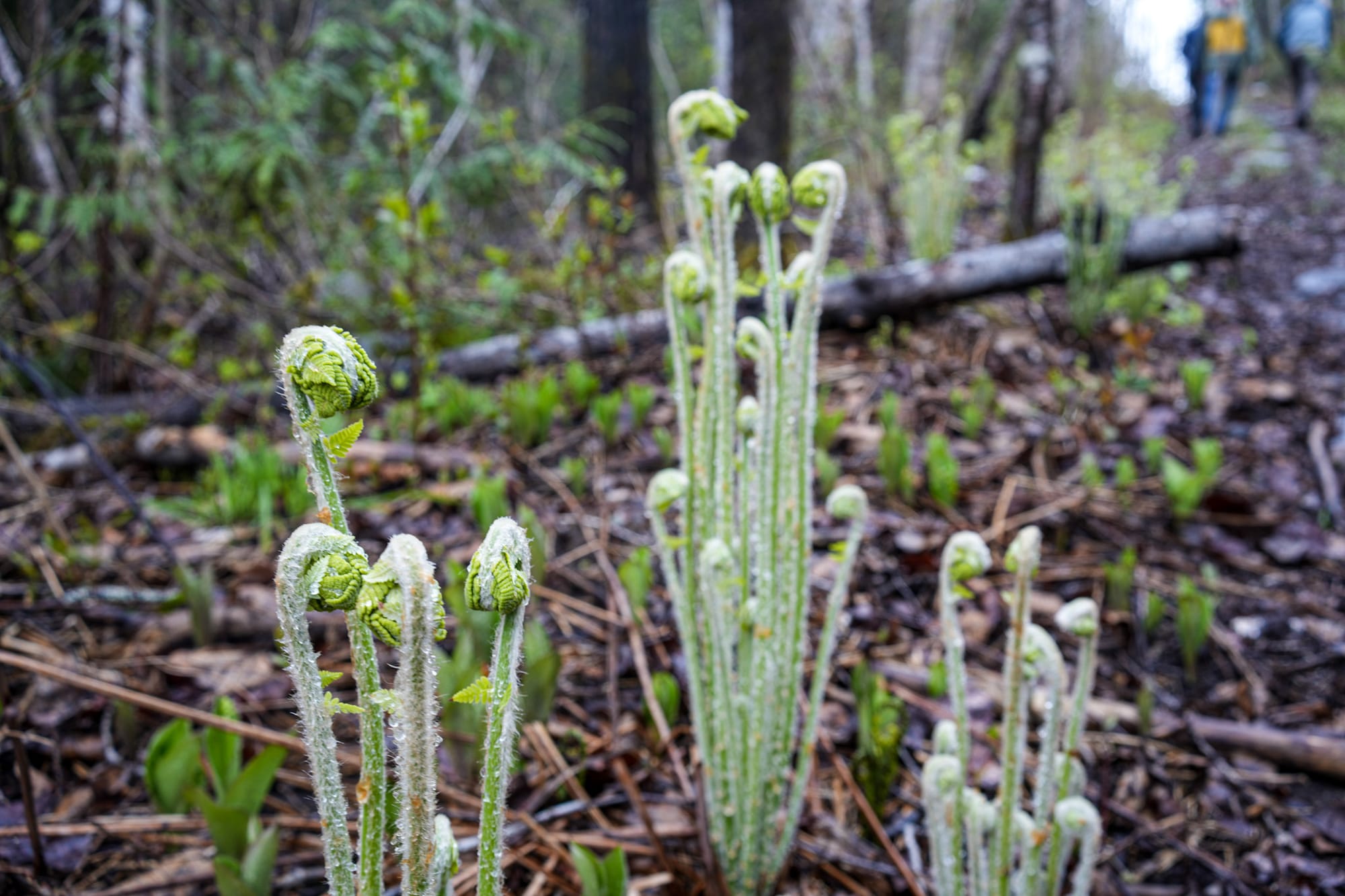
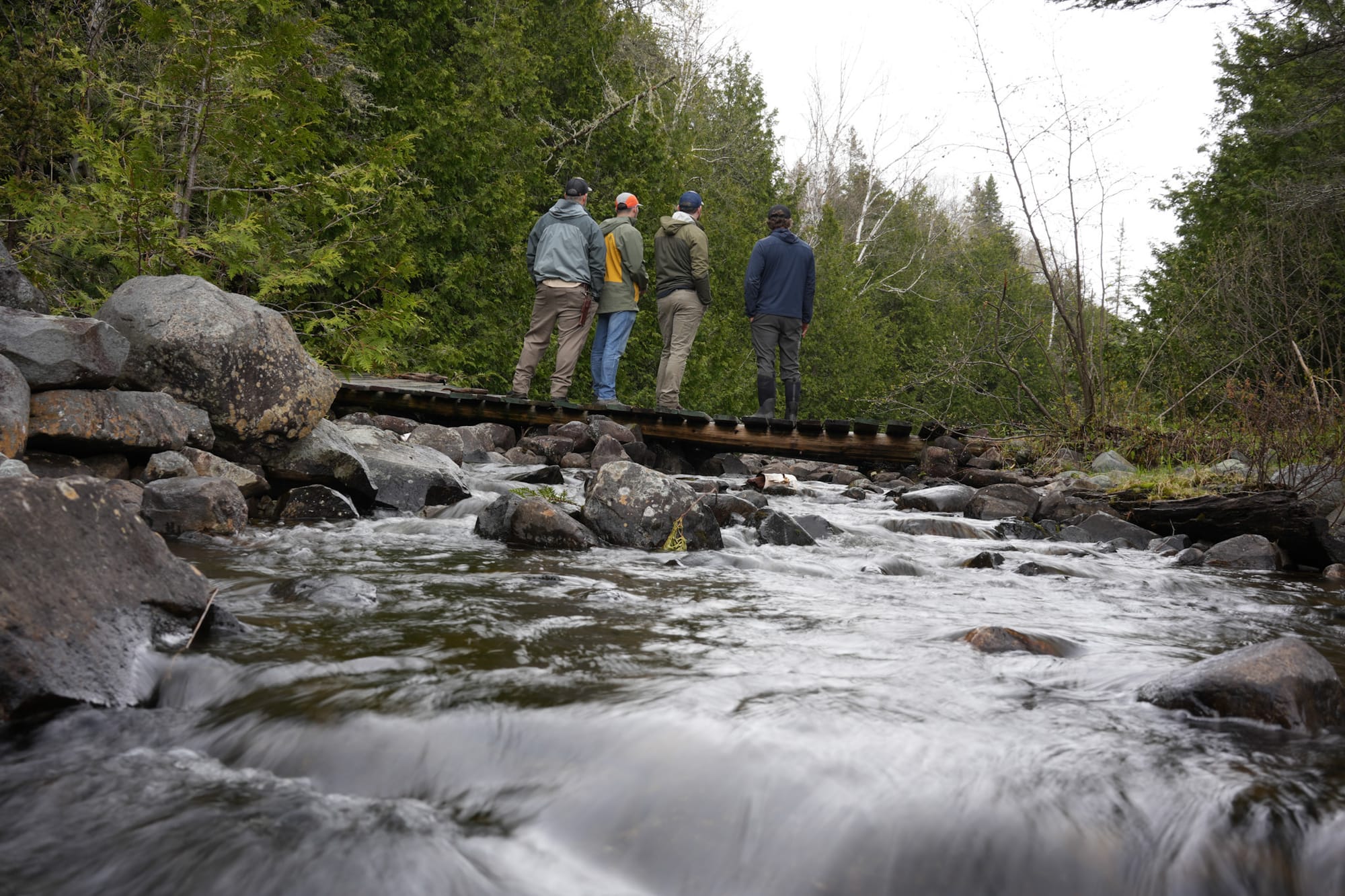
Sam’s grandparents, Mémère (Marg) and Pépère (Leo), stopped by briefly with his uncle Pierre. They’re unfailingly kind and tough northern Canadians. It was a treat to see them again. Marg, in her mid-eighties, sipped Crown Royal with water. Leo, now 93, had a Molson and his presence brought back memories of when he and I sat at this same green table fourteen years before. We traded crass jokes and played cards until 2 a.m.
Things have always gotten rowdy at the cabin. Pictures depict rye-drunk men dancing on the table. Cigarette burns and unknown names are etched into the wood.
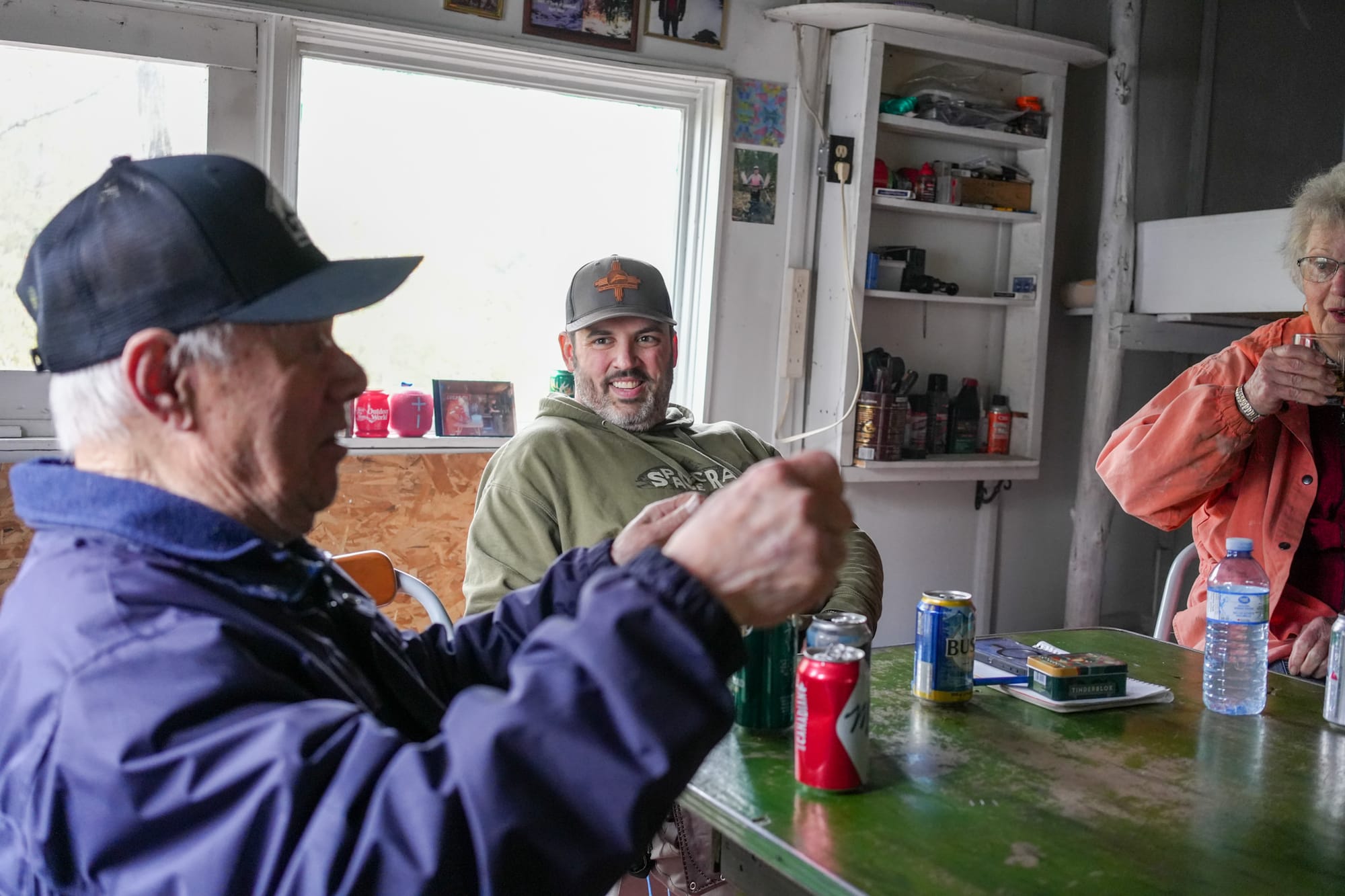
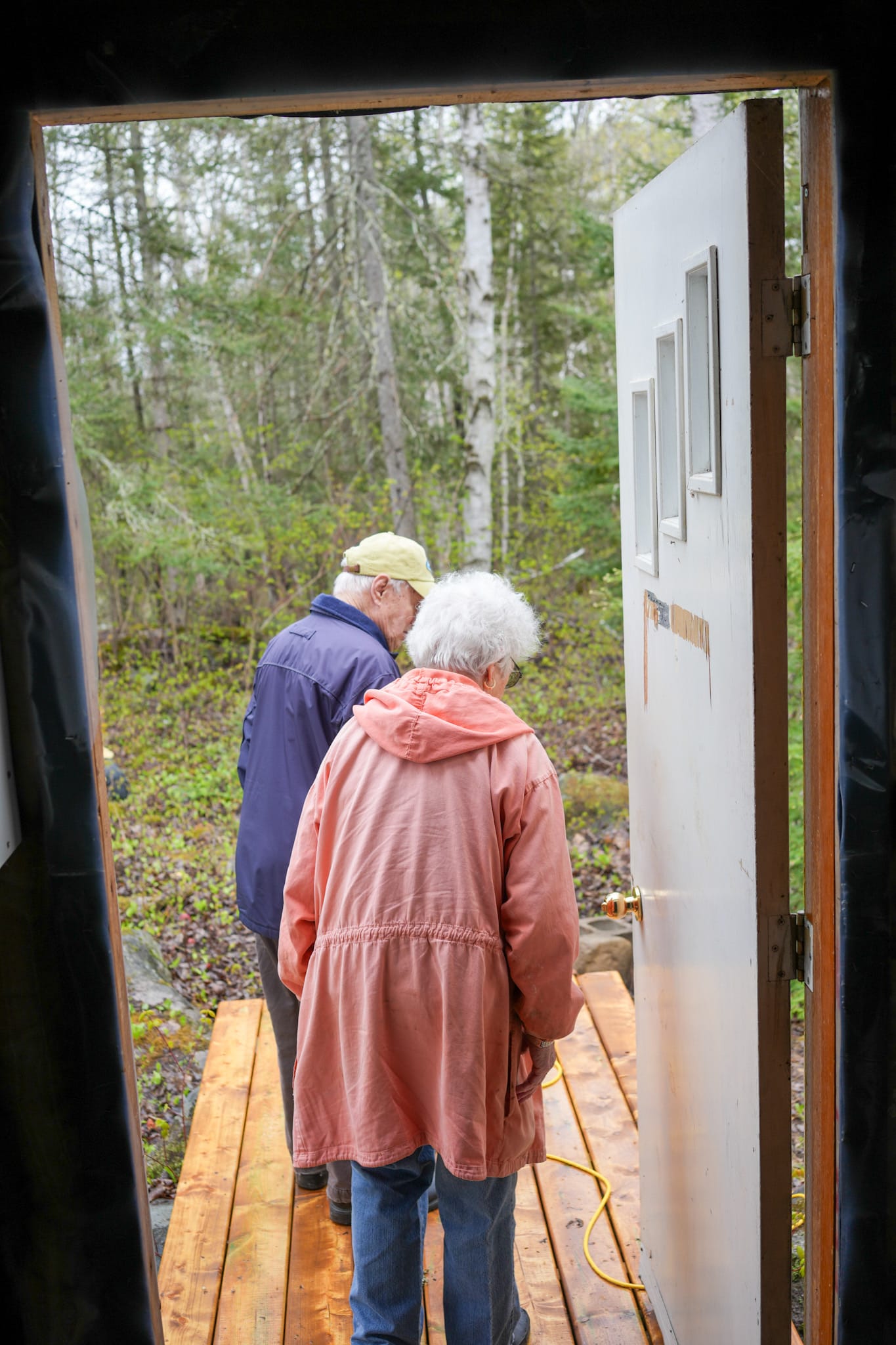
Kyle, a 26-year-old family friend of the Despres, rumbled up in his souped-up F-150, which he'd used to haul up a small skiff for fishing a few days earlier. He spoke with an accent straight out of a show like Letterkenny and, like many of the Despres’ extended family and friends we’d meet on the trip, worked a demanding, physical job outdoors on gas pipelines, similar to the kind used to make the stove. His grandfather, Keith, was best friends with Leo.
Keith passed away in late 2024 and this was still very fresh for Kyle. He later told me that his grandfather was also his best friend. They lived together for a time. I could see the rawness of it sitting there just under the surface as he looked over the old photos on the walls that showed Keith, roaring with laughter, with Leo and others of their era.
After Kyle, Terry, another of Sam's uncles, drove up in his truck around 8:30 p.m. to meet us. He's a burly man with dinner plate-sized hands. A lumberjack. The story that always sticks with me about Terry is the time he kicked a threatening black bear in the face to drive it away from nearby people. He was the mayor of his small town for decades. He doesn't use the internet, or his phone, really. Sam says that he has to get a hold of Terry by calling his wife.
Sam took Thomas and I out on Uncle Pierre's skiff for a joyride later in the evening. Light rain dappled the surface of the water as we pulled out of the launch. He opened up the outboard motor and we steamed across the lake. We didn't have anything motorized available to us last time we were out here. On this trip, we could appreciate the vastness of the black water. I took deep breaths of the fresh air emanating from the damp, dark pines as we made our circuit.
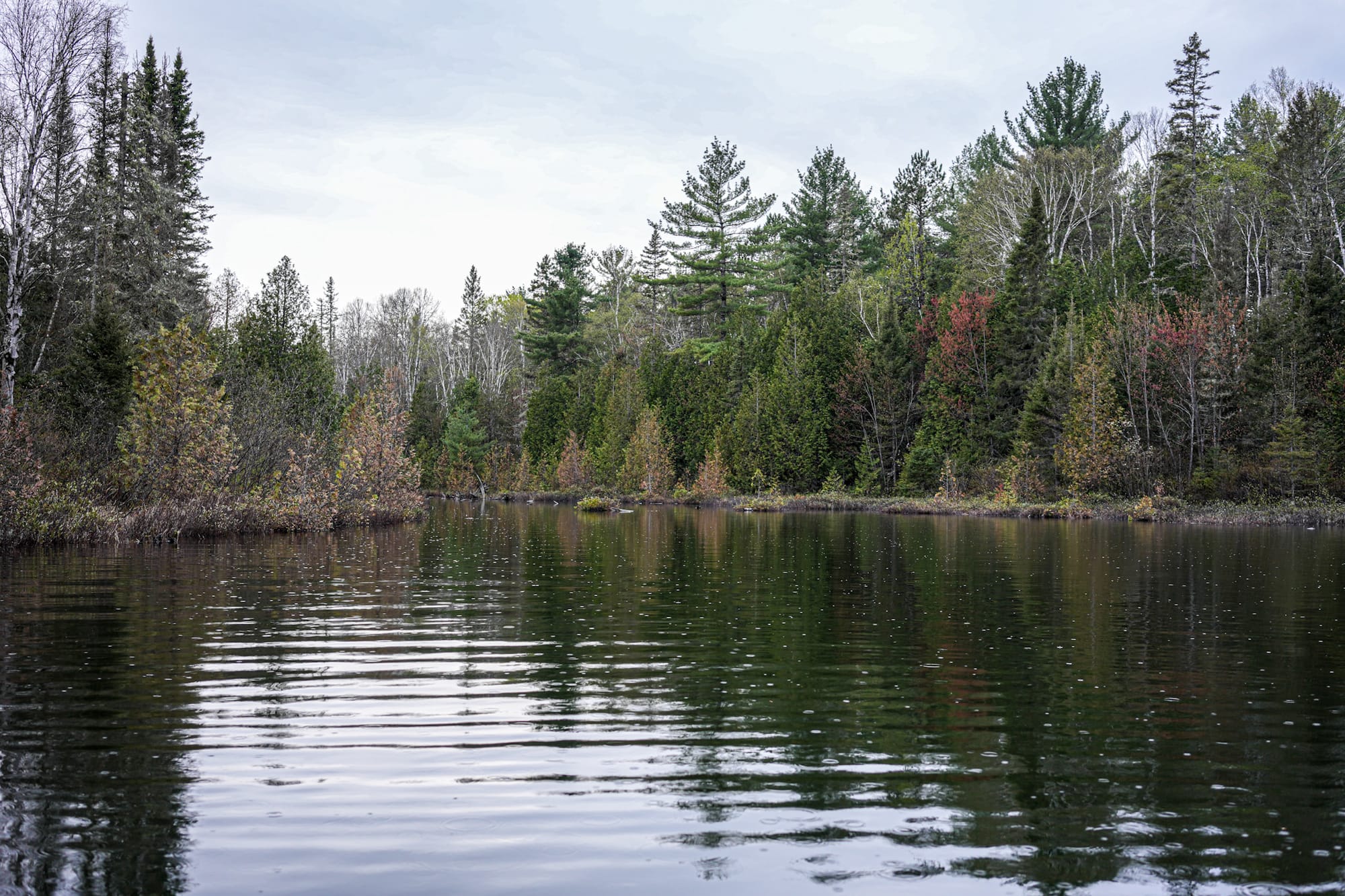
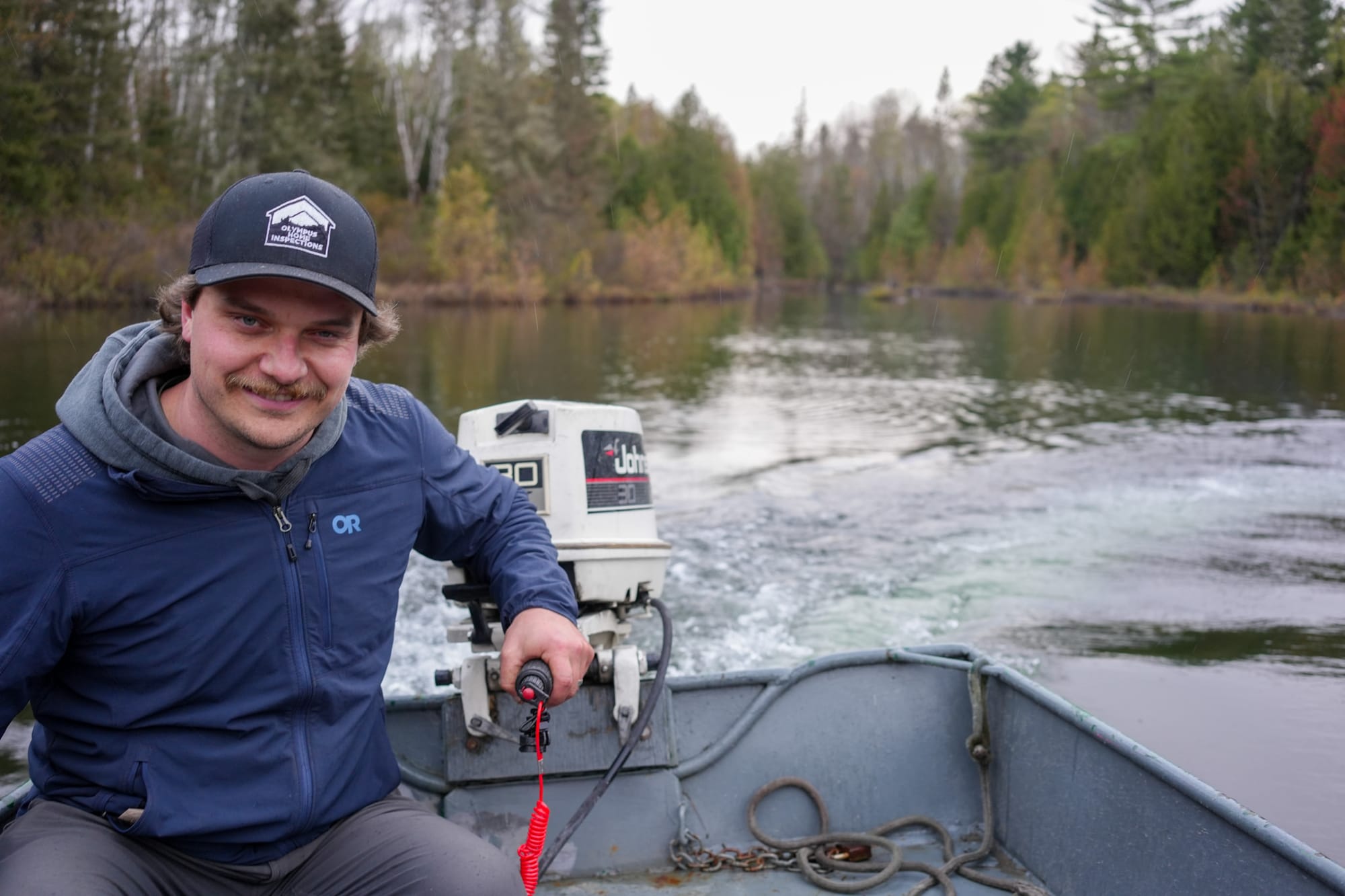
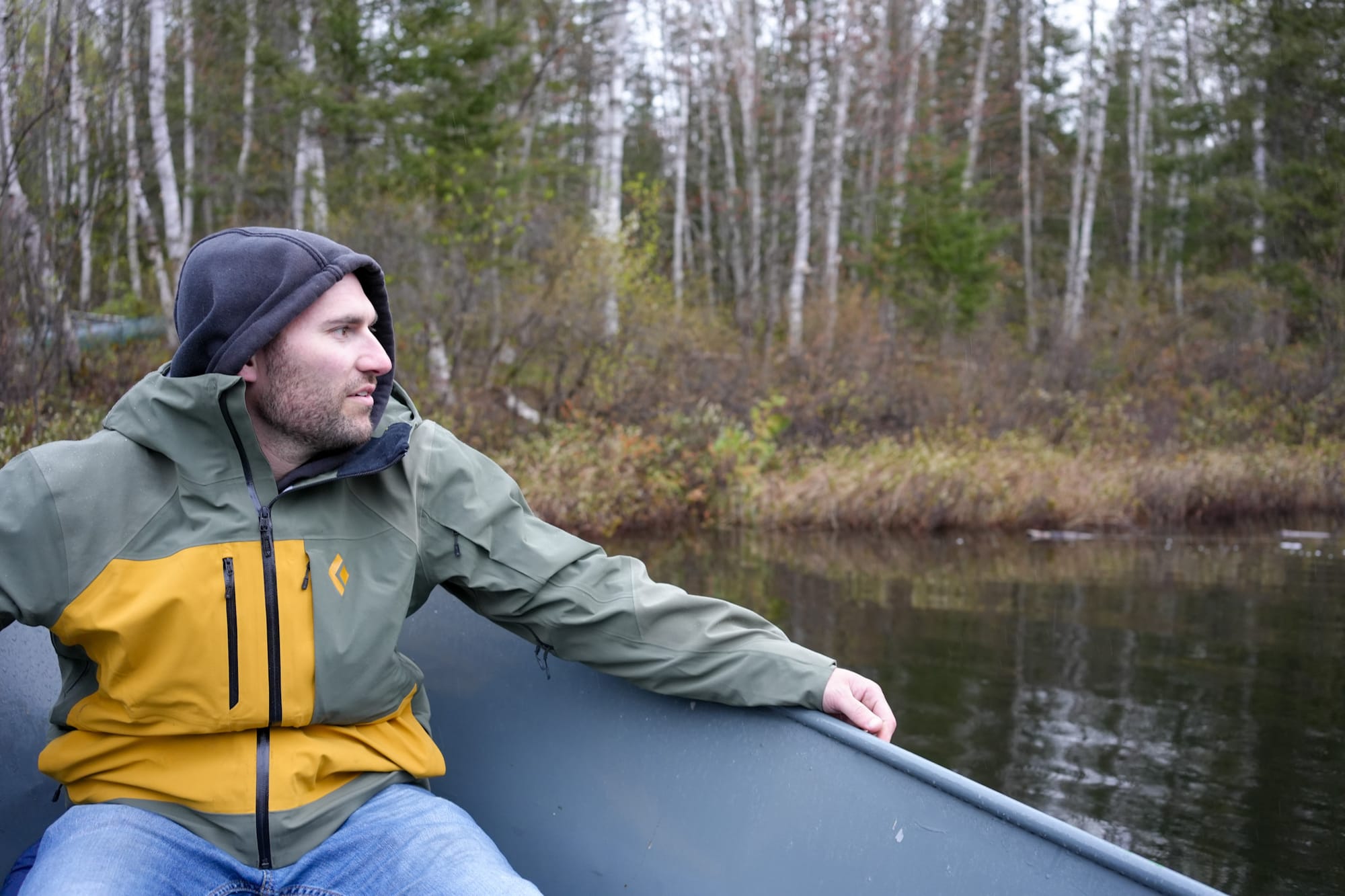
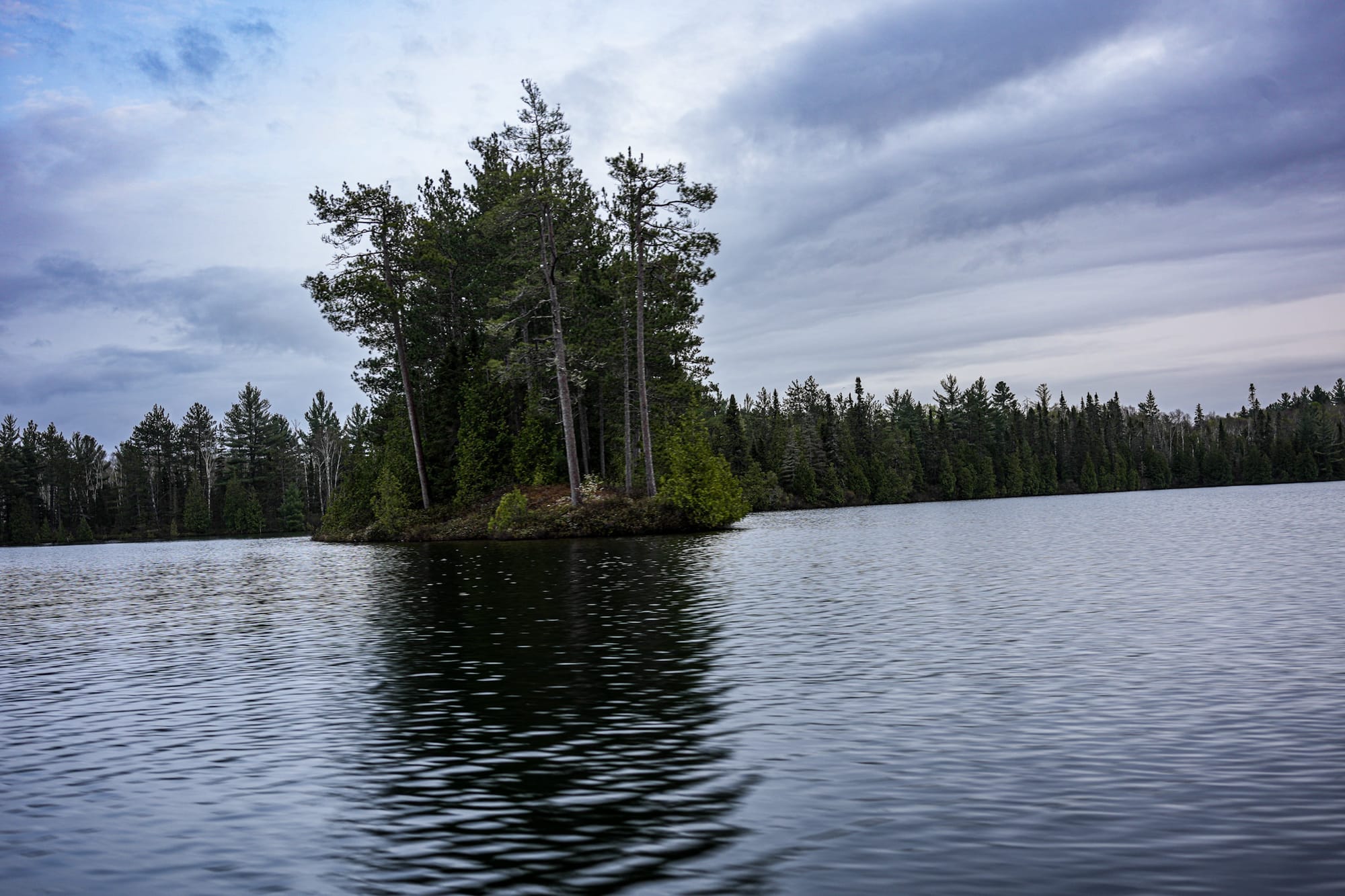
I woke at 3:30 a.m. that first night. The heat of the stove baked me out of my sleeping bag and sweat slicked my forehead. All around the room thunderous snores shook the walls. I knew immediately I would not be able to return to sleep there, so I bundled up my bedding and moved out to the Suburban, folding the seats down for a flat platform. This turned out to be a wonderful decision. It was quiet, cold, and I could hear the rain lightly pattering on the roof and windows. It became my sleeping quarters for the rest of our stay at camp.
The next morning, we stood around hungover as Terry showed us the rusty beaver traps in the back of his truck that he and his son Addison use. He set one up and poked the trigger with a stick. I jumped back as the vicious contraption snapped shut.
Though very cute, beavers breed like crazy around these parts and cause mayhem felling trees and damming up streams, so the government encourages trapping to keep their numbers in check. Depending on the season, you can earn decent money from the pelts and castoreum oil (which they produce in a gland that resembles a scrotum). The oil is, weirdly, used in perfumes and scents.
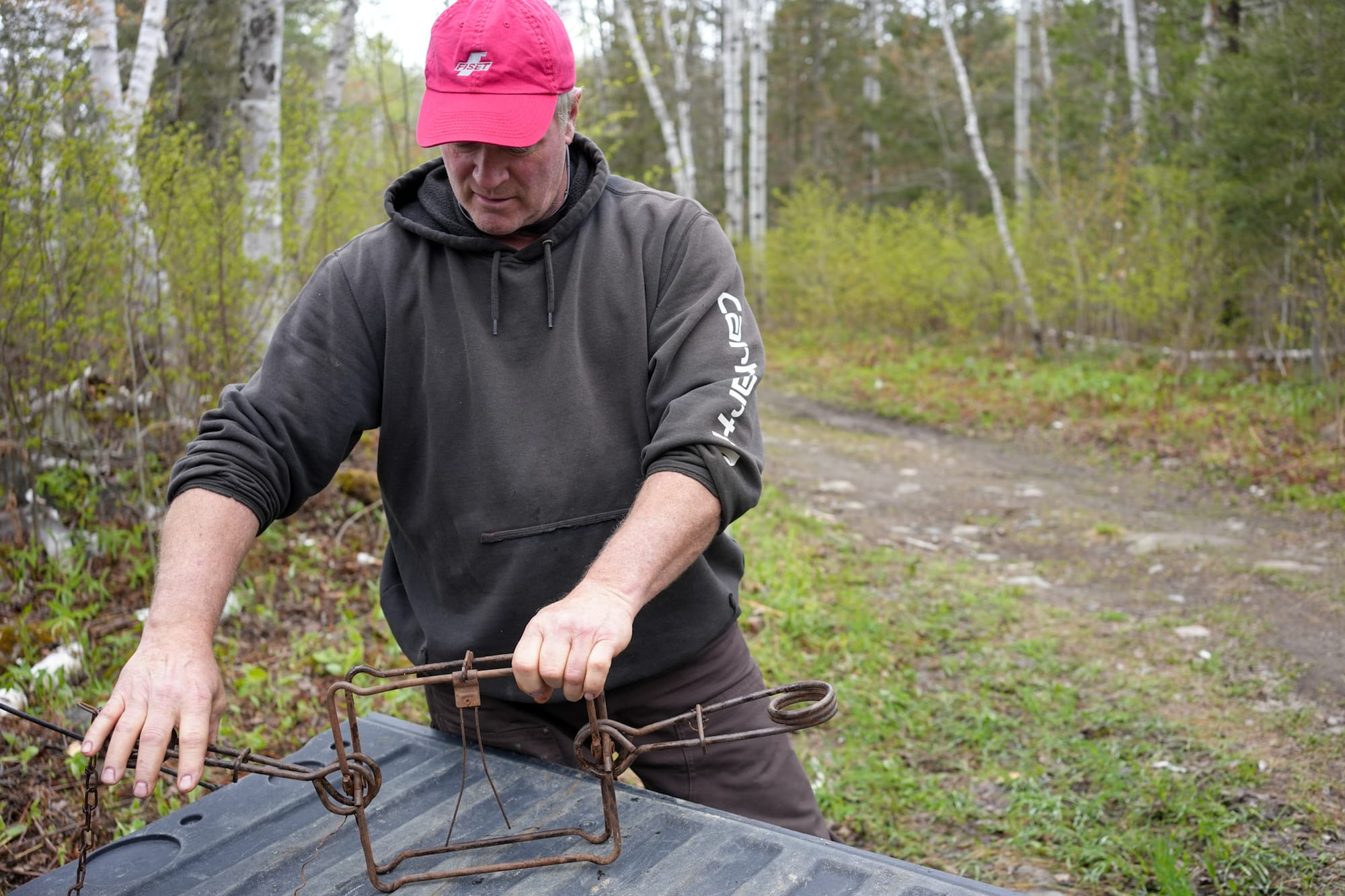
Rob, Thomas and I took a skiff back out, while Sam and Terry stayed behind to get started on a big chicken wing fry up. Rob was the only one of us to have a fish on during our hours out there. I wondered if it was because of how my lure disappeared into the inky black depths. I couldn't see it until it was almost to the surface.
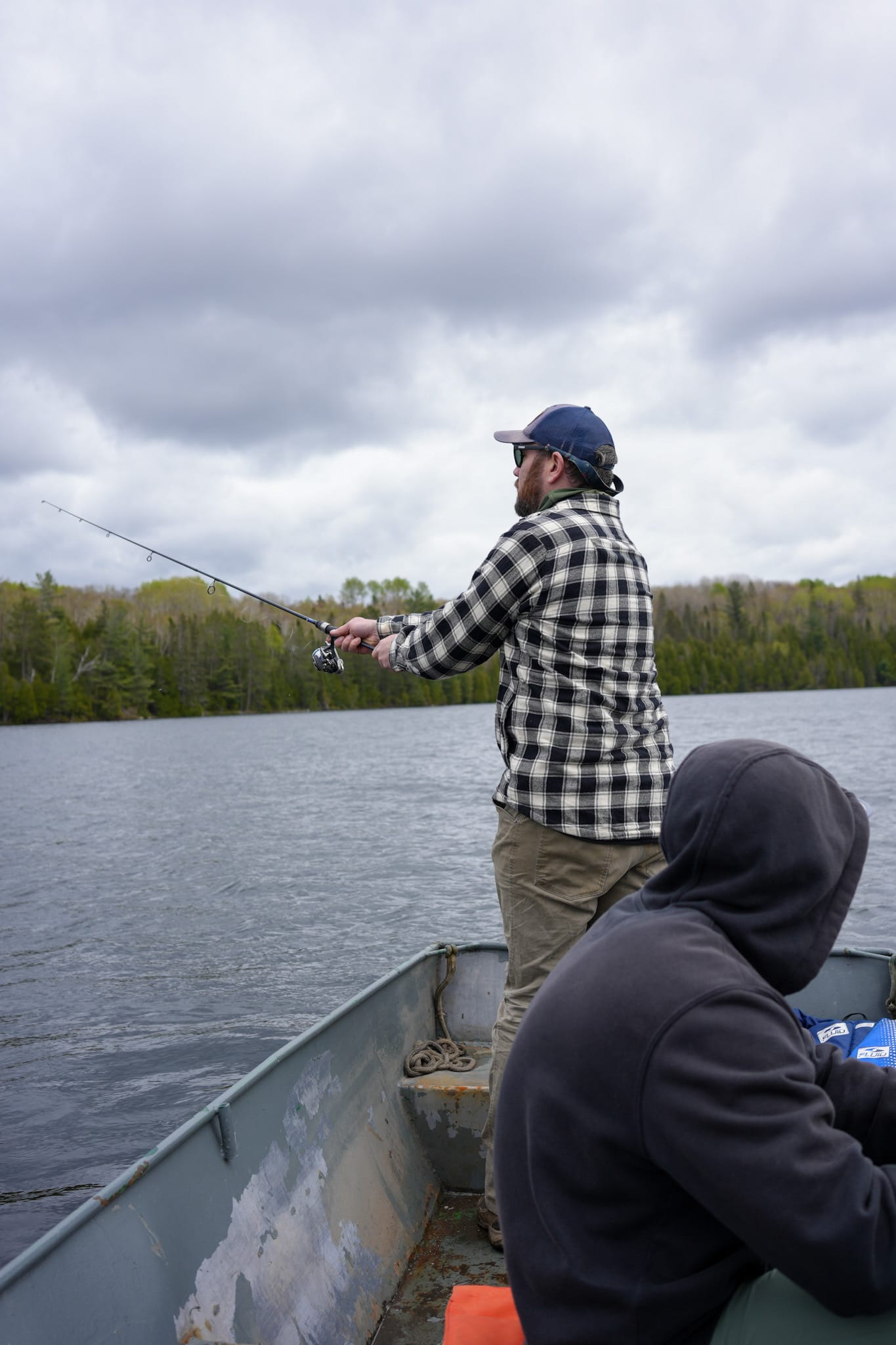
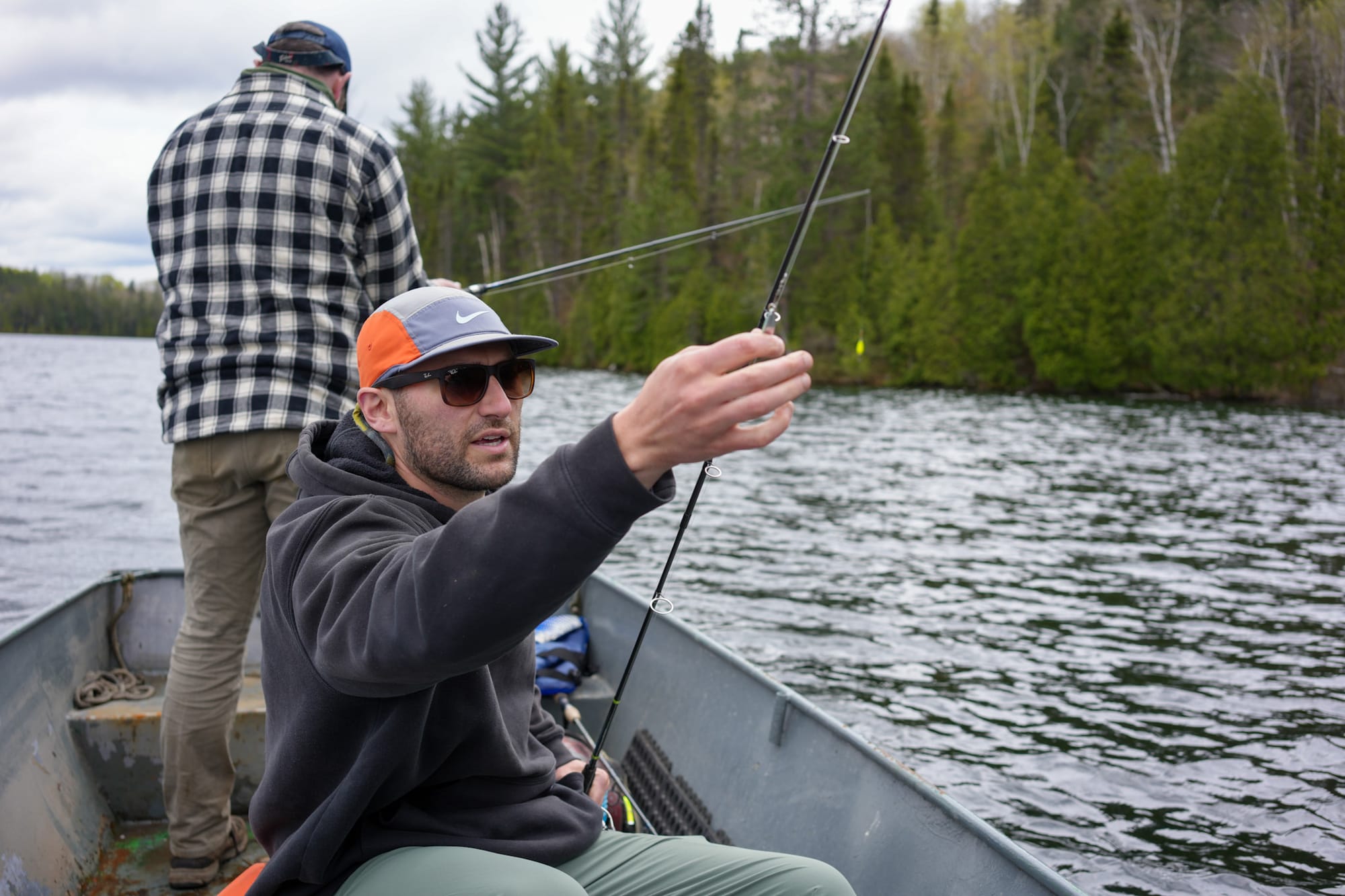
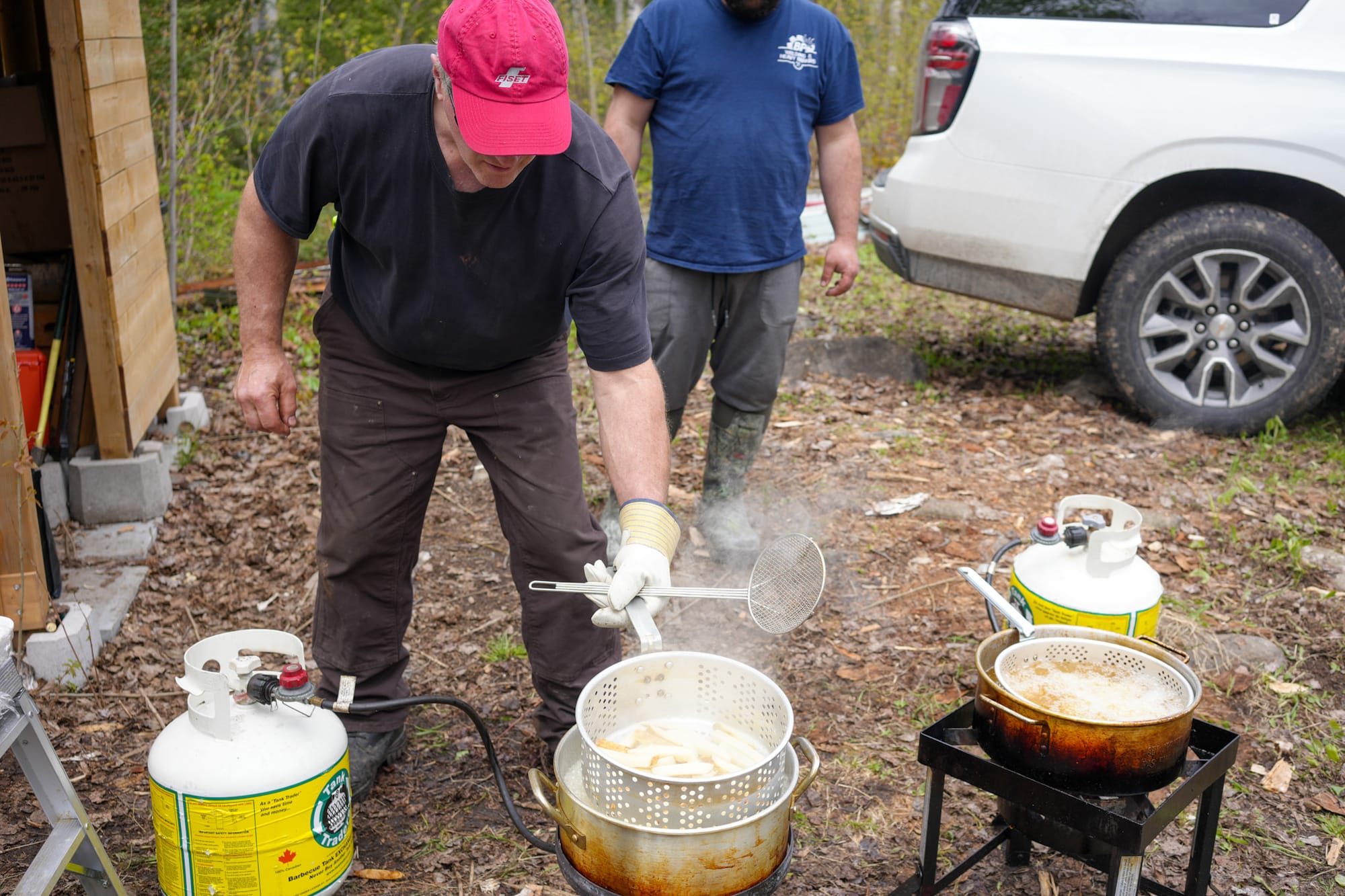
We all went out again later in the skiffs. Kyle and Tanner had a sonar fish finder and found lake trout about forty feet down in a spot near the shore. Kyle managed to wrangle two, while the rest of us had no success.
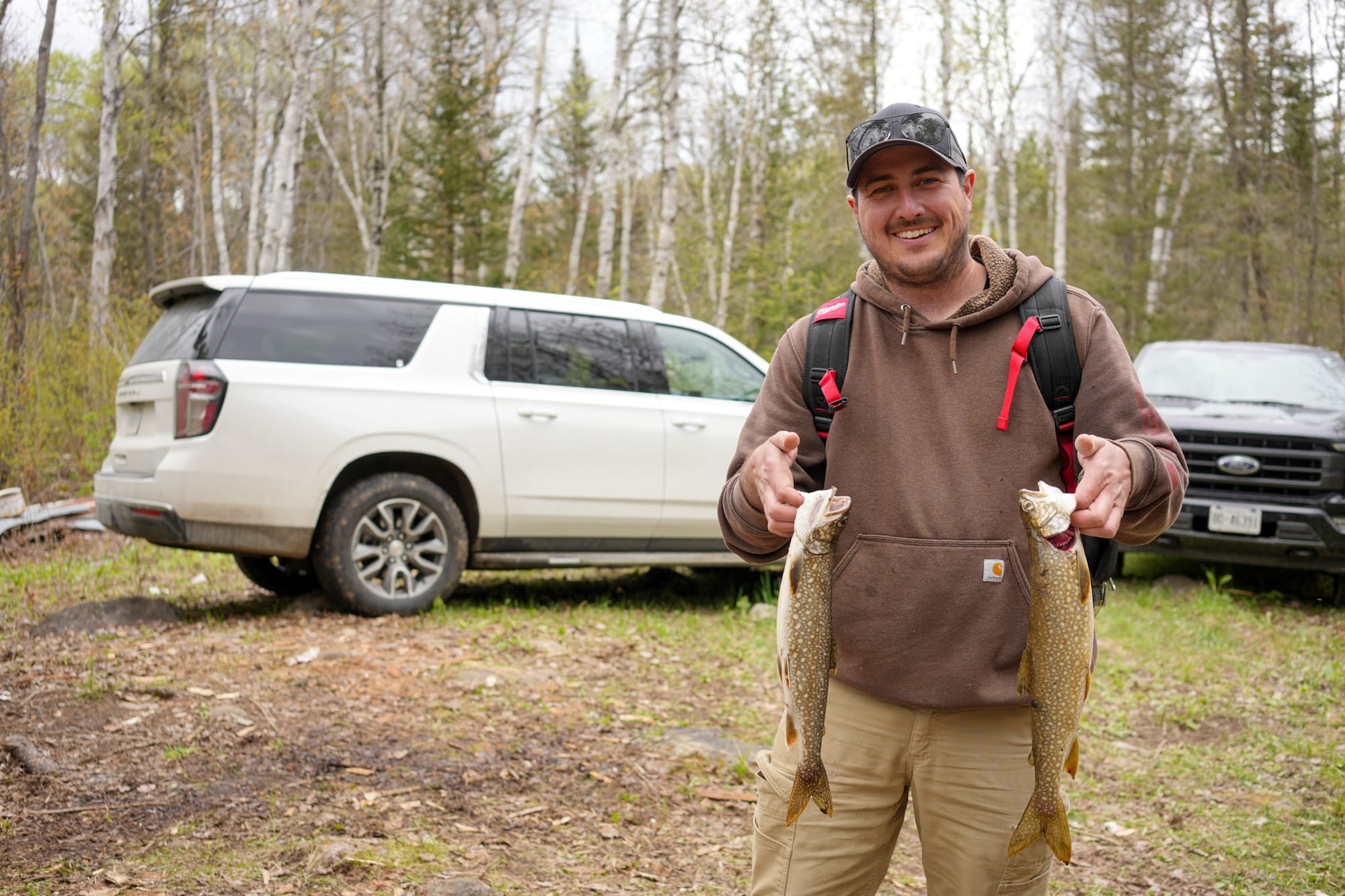
After playing poker well into the night, we had the trout for breakfast the following morning, cooked in foil with lemon, salt and pepper. That day, Sunday, we realized we'd plowed through almost all of the beer and whisky we'd brought (something like 150 beers and a couple fifths), so we ran back into Temagami to top up.
The rest of the day, we fished the various lakes that dot the landscape alongside the power line cut. Not a single trout among us. We did, however, have a lot of success teasing small perch and minnows next to the shore with tiny nymph flies.

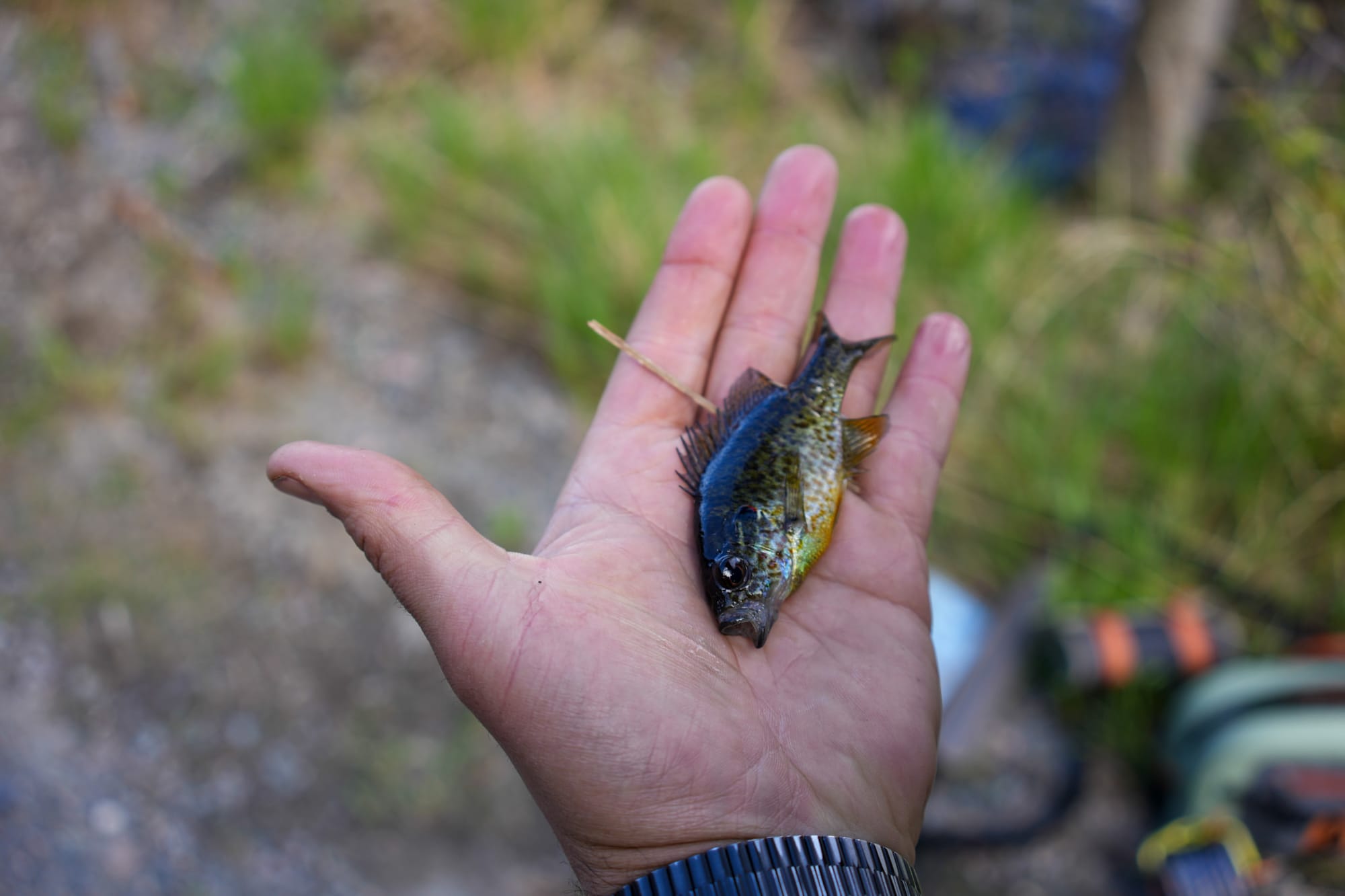
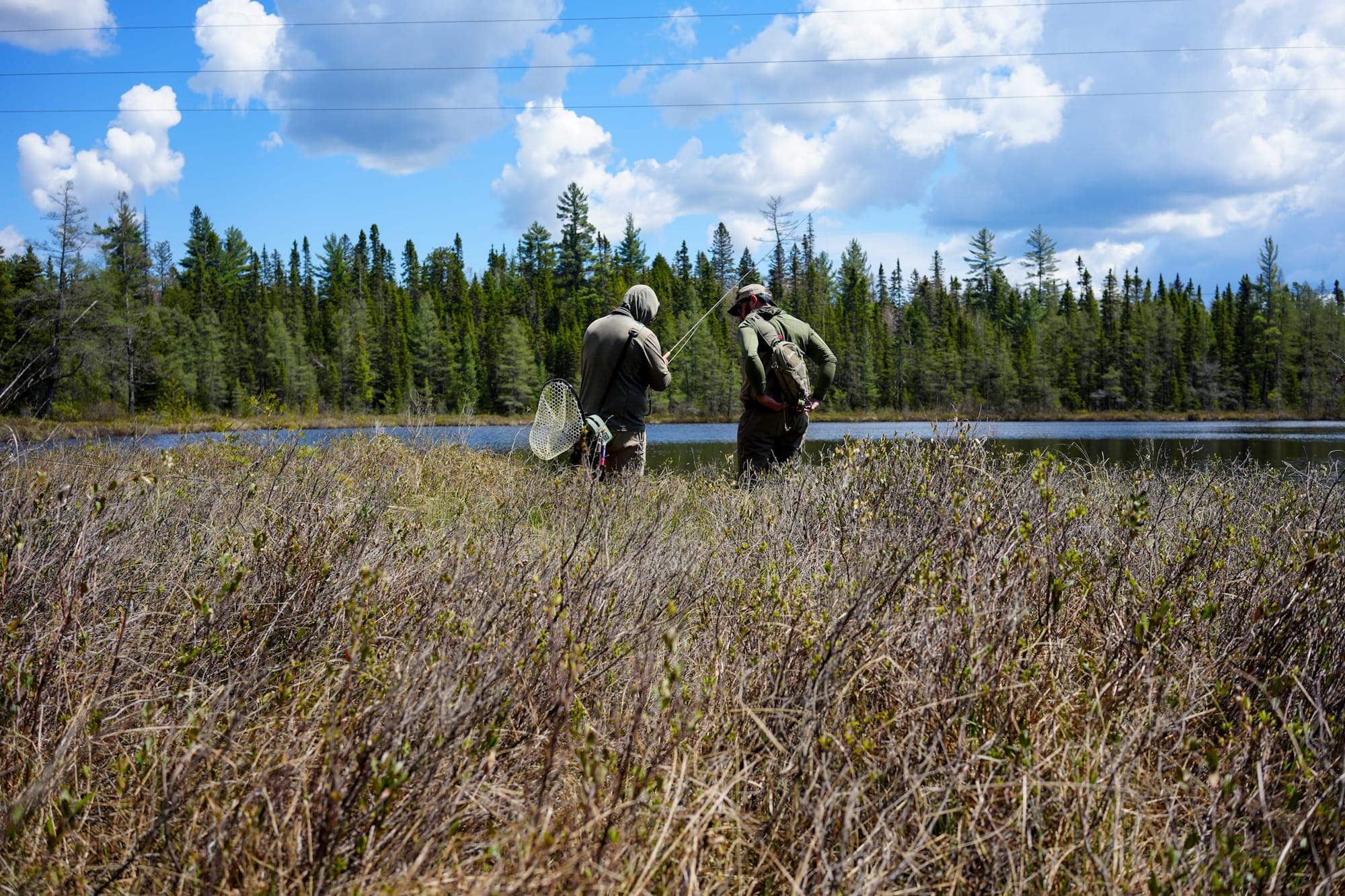
That evening found us playing more poker and a game Sam introduced us to called Stump. You sit around a tree stump and lightly tap in a nail for each player. The goal is to pound in all of the other players' nails before your own is hammered flat against the surface. It feels a little bit dangerous because you have to flip the hammer, catch the handle, and swing down in a fluid motion for it to count as a legal turn. I cut my finger pretty badly on my own nail as I arced the hammer down to attack Tanner's. He kindly field-dressed my finger with a paper towel and electrical tape.
The next morning, we packed up camp and headed to Haileybury, where we met Leo and Marg again for dinner at their house. I could barely keep my eyes open from the consecutive, whisky-laced late nights.
Marg cooked up a wonderful spiral cut ham, with potatoes, gravy, and carrots.
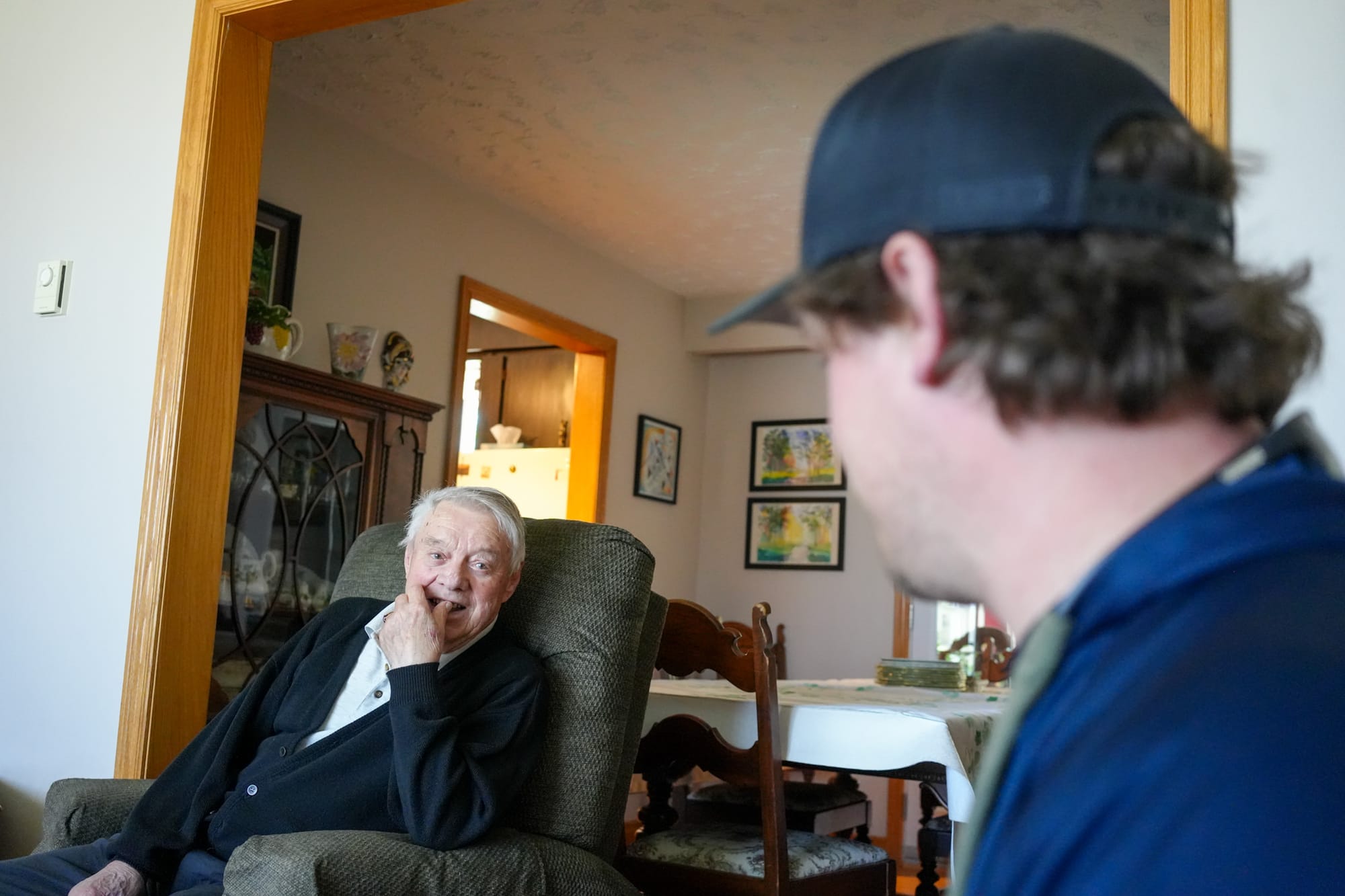
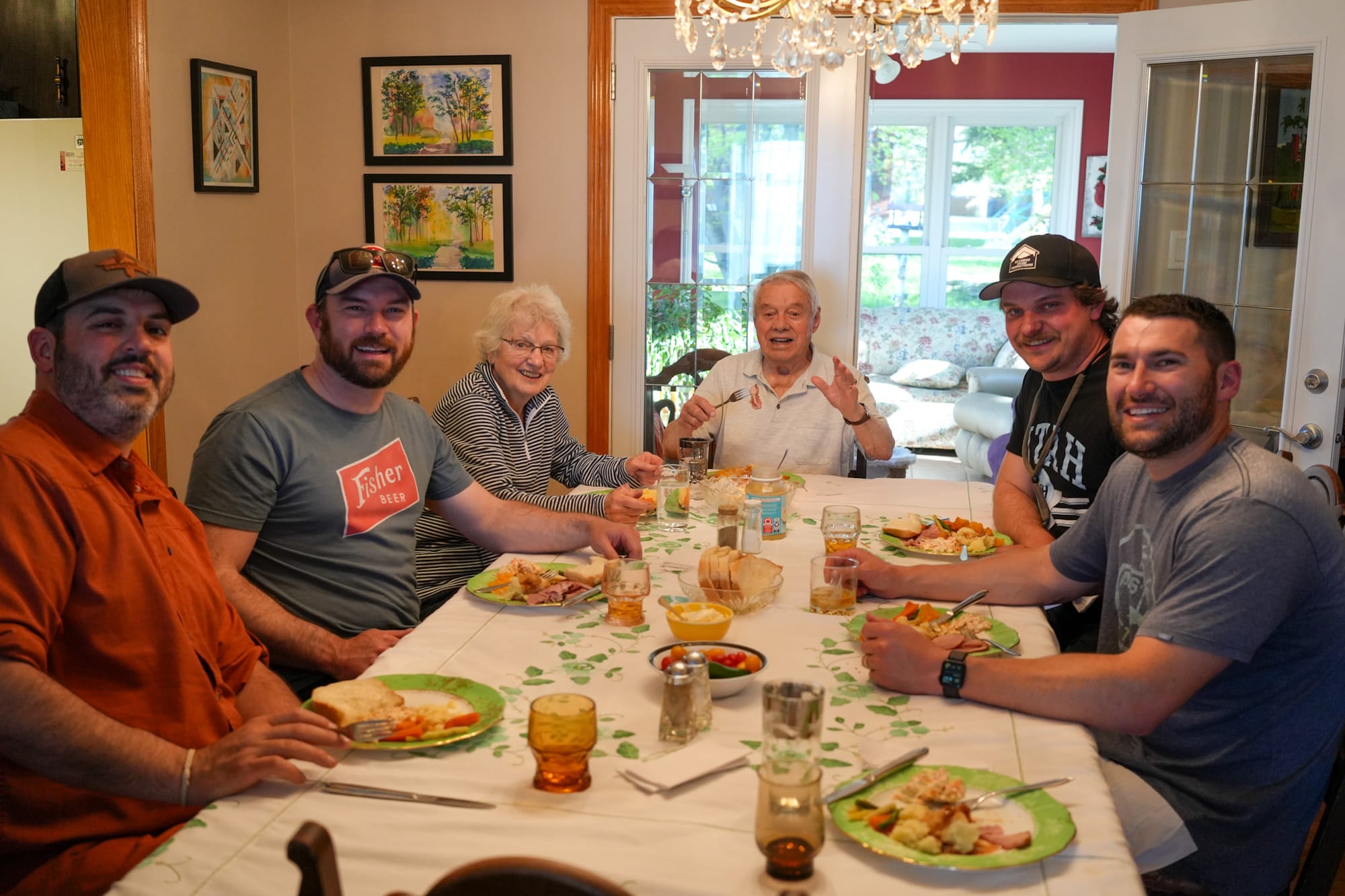
Upon Pierre's recommendation (and his tab), we went by the Legion, which is equivalent to a VFW in the US. We got a second wind with the beers and played shuffleboard and shot pool. Tanner made a point to ask our bartender's name. He writes them down in a small Moleskine-style notebook in his pocket like a boozing journalist. Recalling the barkeep's name is an easy way to build rapport, he said. Having an ally pouring the drinks usually means a better time.
I liked these small habits of Tanner's. We hadn't spent extended time like this before and so I hadn't previously noticed them. He's a collector and an optimizer. He collects knots, one of which we used to suspend a beaver-chewed log from the rafters of the cabin, but also knives, pens, bags, fishing tackle. I was complimented that he looked over my camera tote and nodded approvingly. (Though this was actually a compliment for Fiona, who's bag I copied). There's something inspiring about the way he analyzes and moves through the material world. It made me feel as if I could be more selective and deliberate about the myriad small things I interact with on the daily.
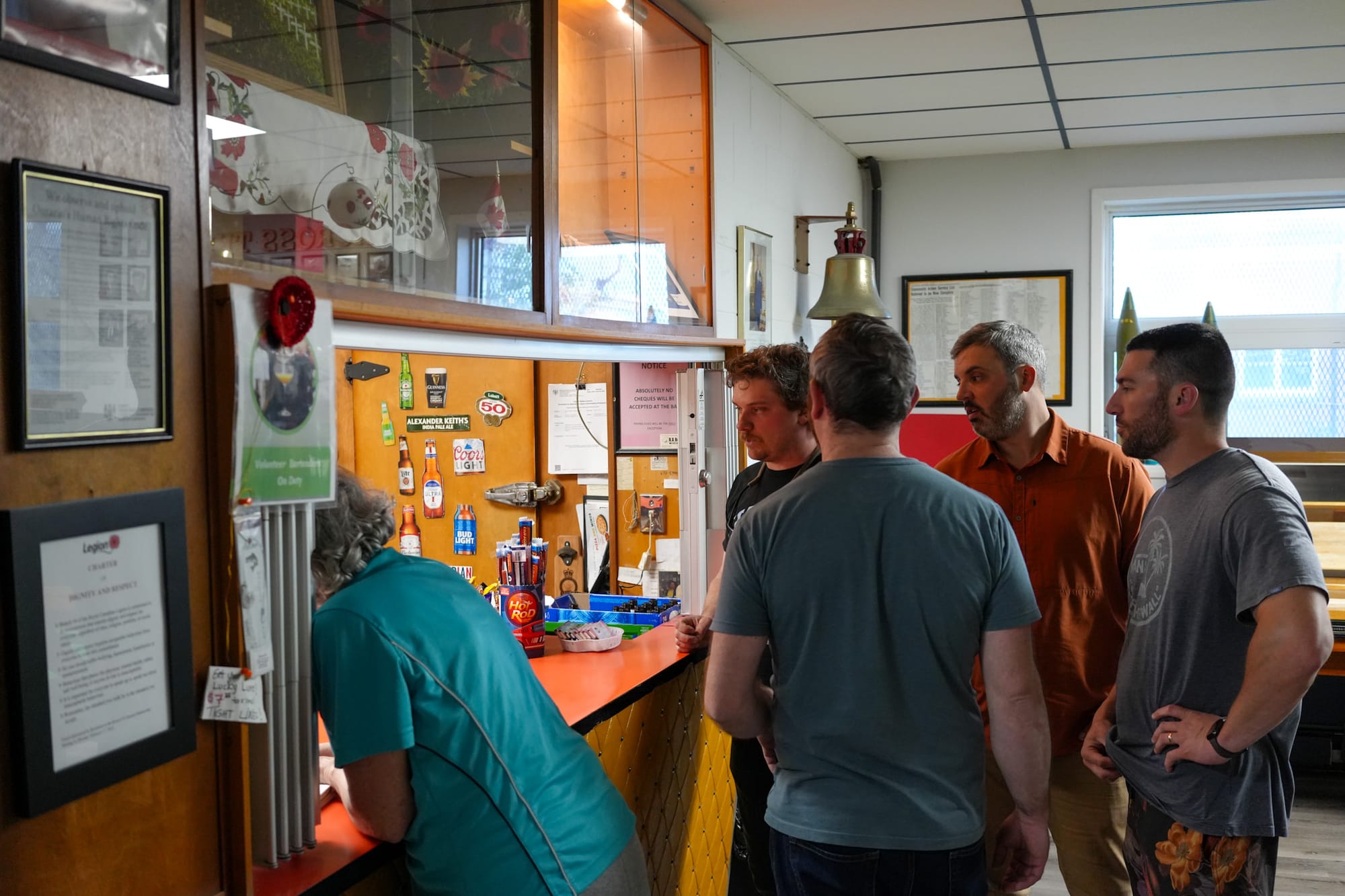
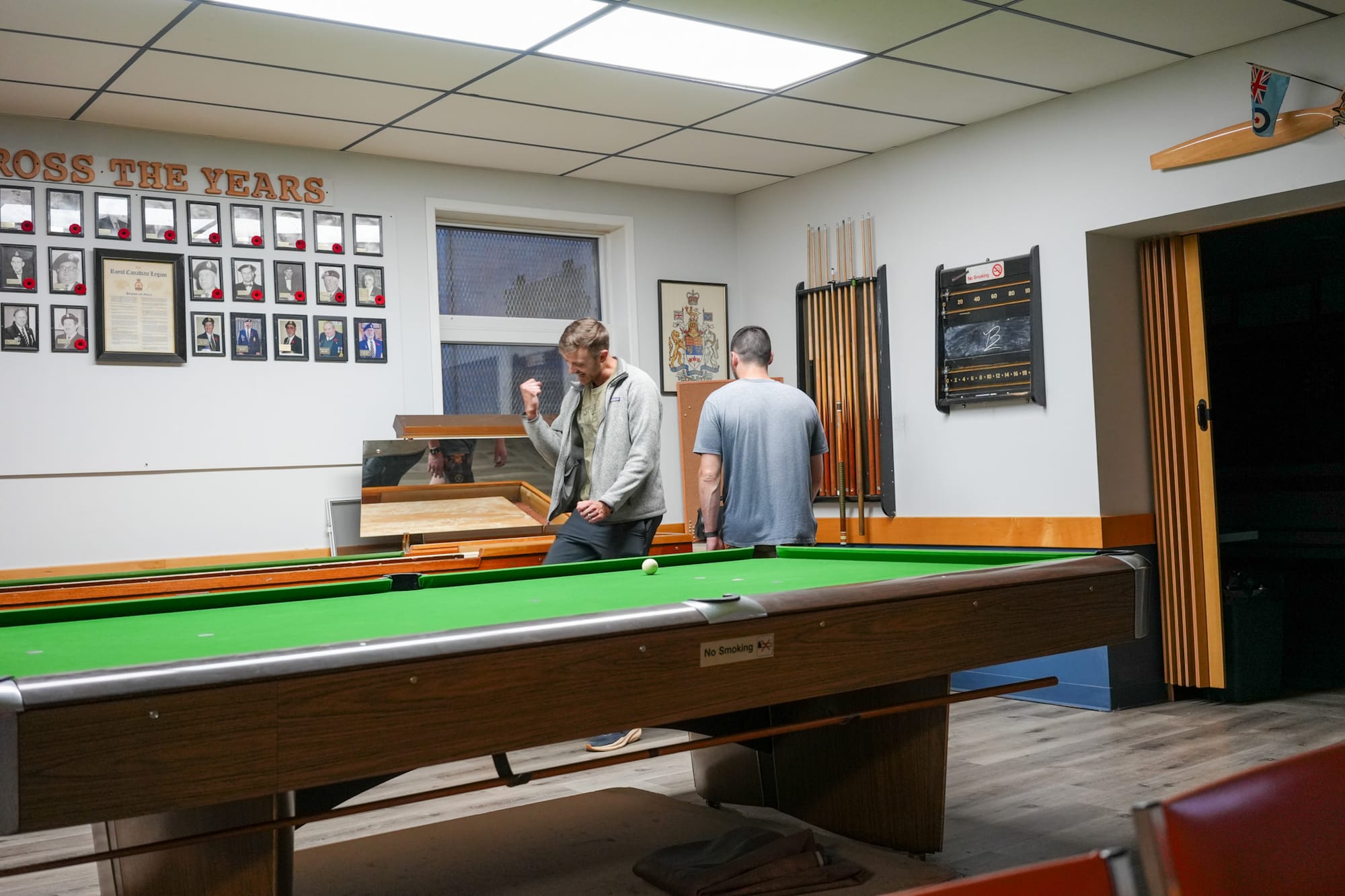
I did not get the sleep I needed that night. We roused at 6 a.m. to leave our hotel so we'd have time to make the drive down to the airport and briefly see Sam's cousin Mackenzie at a burger/poutine spot called Weber's. She and her boyfriend both work at a gold mine in the area. Mackenzie is a welder and an excellent one at that, Sam said. I wondered if there was something in the water in northern Ontario that made everyone this hardy.
On the flight home, I dozed off watching Gladiator 2. Not that great, I thought. I could barely keep my eyes open as we walked through Salt Lake International to baggage claim. Somehow Sam and the others can live indefinitely on five to six hours of sleep per night and they seemed fine.
Over the ensuing days, I slept in and took long naps to recover (and I almost never nap). Fiona half-jokingly asked at one point if I needed to go see a doctor. But it was just cumulative exhaustion. I could see it on my heart rate variability graph. Green for all of May, and then a sudden dip deep into the red. I'm still leveling out as I write this.
But I basked in the afterglow of our time at Camp Bang Dang. It brought us all closer as friends, being there amongst the old timbers. Sipping cold Molsons next to the roaring fire outside. Seeing how the light fog and mist curled around the lake. Streaming colorful lures into the dark water. The late nights with the shit-talking, poker chips, and games of Stump. It felt as if we wove a few of our own threads in the great, yet humble, tapestry of the camp. On the journey back to Toronto, Sam took us the long way, steering us once more through the power line cut—a quiet salute to Joseph, who once walked those wires in the forest.
